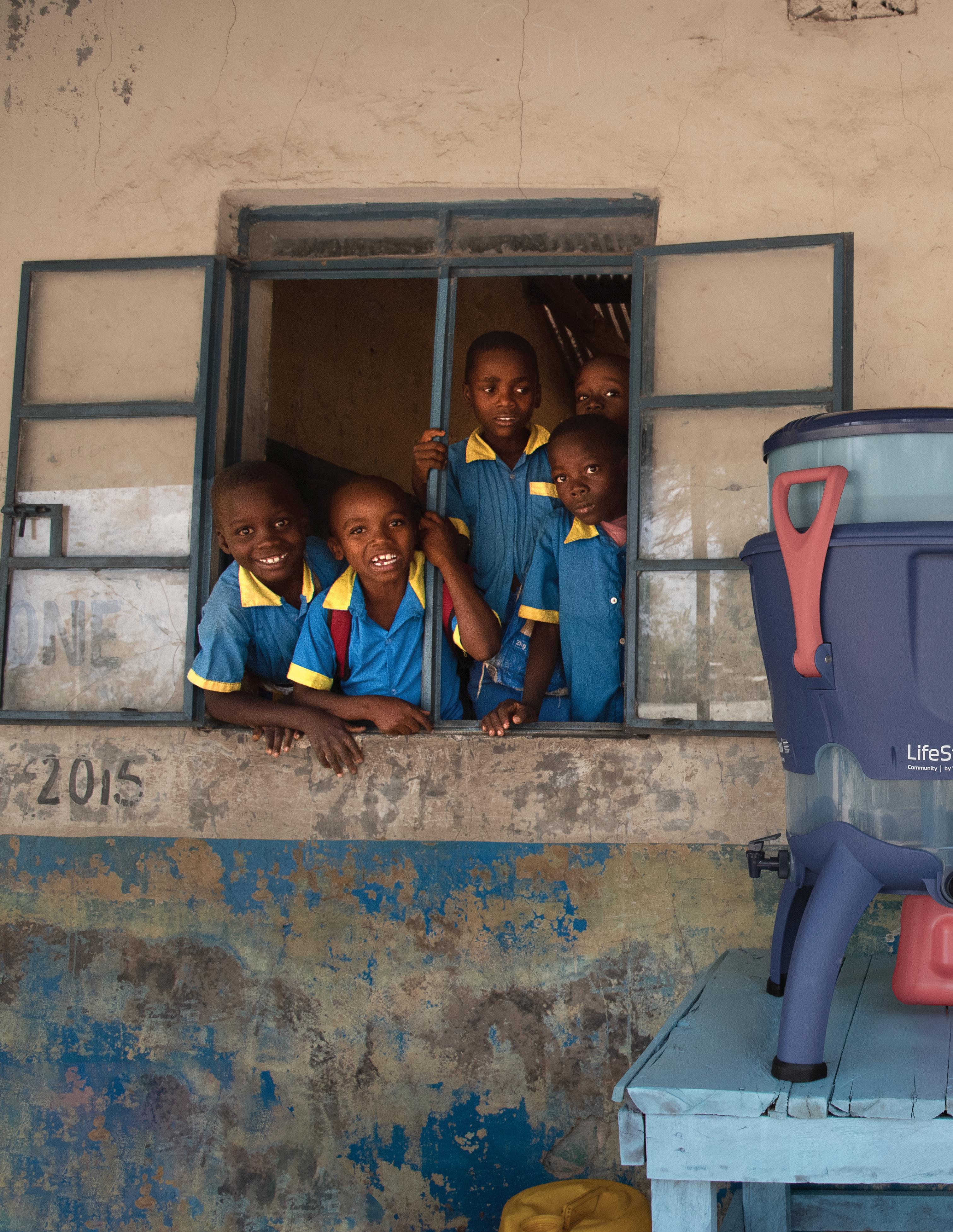RESPONSIBILITY REPORT
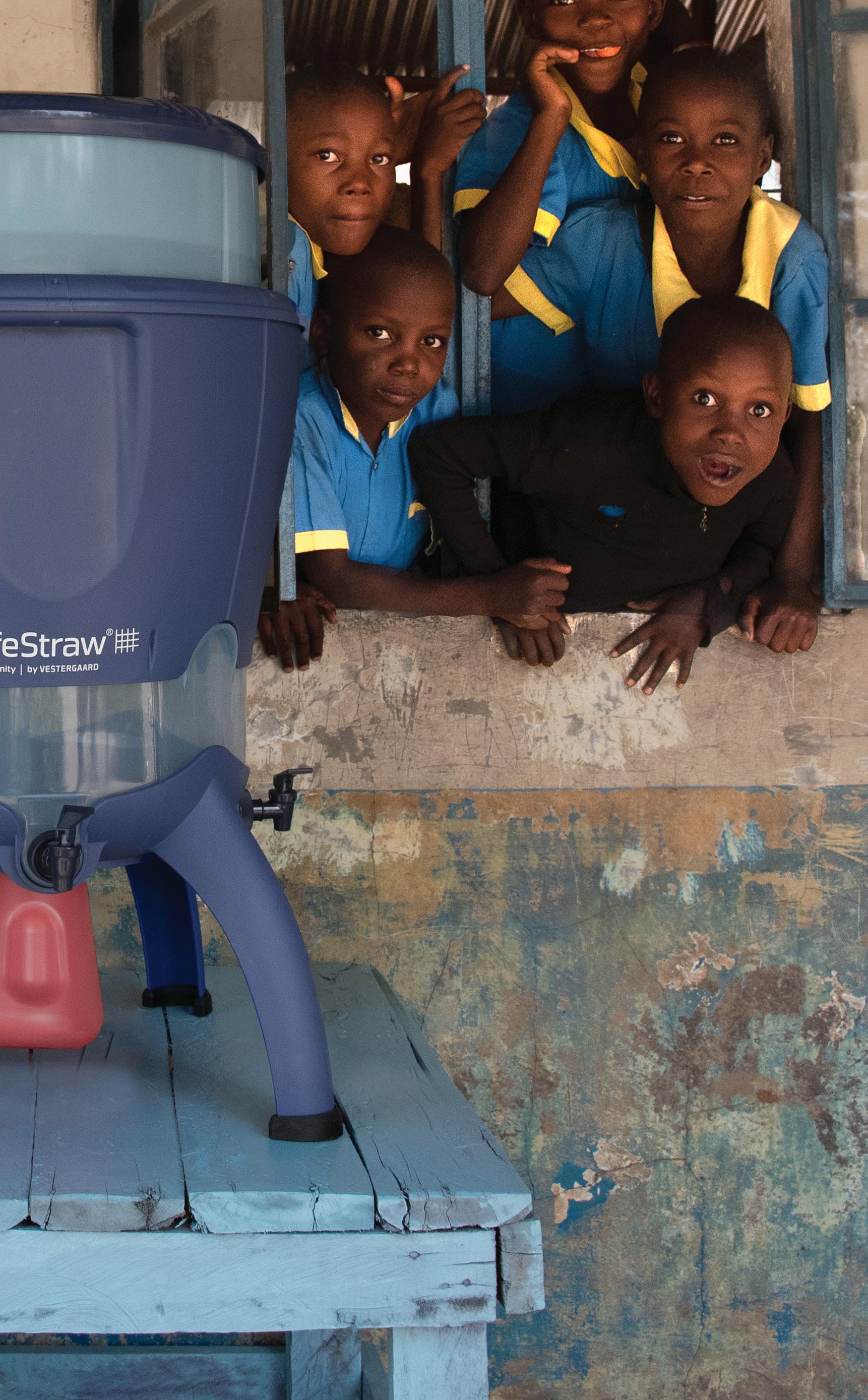
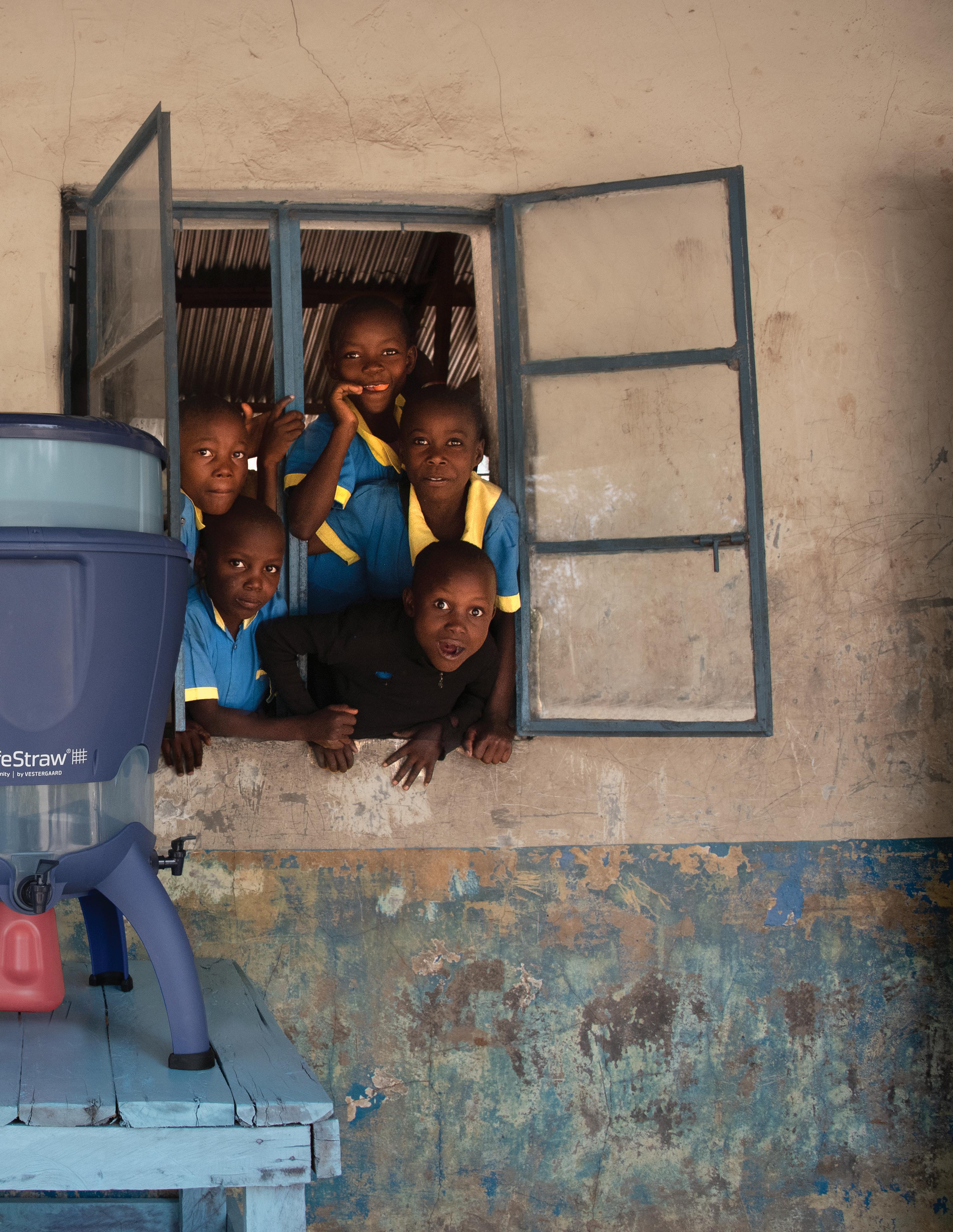
LifeStraw was founded on the principle of humanitarian entrepreneurship with the belief that BUSINESS CAN AND SHOULD HAVE A ROLE TO PLAY IN CREATING SOCIAL IMPACT GLOBALLY.

A NOTE FROM ALISON HILL COMMITMENT SCORECARD
WE BELIEVE
B CORP CERTIFICATION
2022 BY THE NUMBERS
IMPACT: PEOPLE
SAFE WATER PARTNERSHIPS GUINEA WORM ERADICATION GIVE
SAFE WATER IMPACTS FROM CLIMATE CHANGE
BRAZIL SOUTH SUDAN
GHANA
UNITED STATES SAFE WATER RESPONSE OUR TEAM
DEI + PEOPLE
VOLUNTEERING ACROSS THE GLOBE BALTIMORE
LIFESTRAW CLIMATE OVERVIEW RESPONSIBLE PRODUCTS + PACKAGING
3 RESPONSIBILITY REPORT
TABLE OF CONTENTS:
PROGRAM TURKANA, KENYA
FOCUS
GIRLS
MEXICO
BACK
A
ON WOMEN +
UKRAINE
IMPACT:
MURAL
PLANET
ETHICAL MANUFACTURING GLOBAL STANDARDS + TESTING 2022 COMMITMENTS 4 6 10 12 14 16 18 20 22 24 26 28 30 32 34 36 38 40 46 48 50 54 56 58 62 64 66 68
a note from
ALISON HILL
chief executive officer
2022 has been an exciting and important next chapter in LifeStraw’s impact journey. After several years of continued expansion of our impact programs and diligently working to show up for communities, while also navigating barriers to travel, health and safety, we were finally able to roll up our sleeves and get back to a more direct, hands-on approach. Team members from every division traveled and worked directly in the communities with local partners and families, to deliver safe water, care, and public health programming in a way that we know delivers results. It felt good.
In 2022, we supported projects across the globe including in Pakistan, Ghana, Brazil, Kenya, and the US. Our teams traveled to Jackson, Mississippi, eastern Kentucky, the Navajo Nation and worked in our hometown of Baltimore, all in response to drinking water crises. I was personally able to support disaster relief immediately after the devastating flooding in Kentucky that created a state of emergency and left many rural communities without any access to safe drinking water. We worked directly with a very passionate local partner, who was a part of the USDA team and a
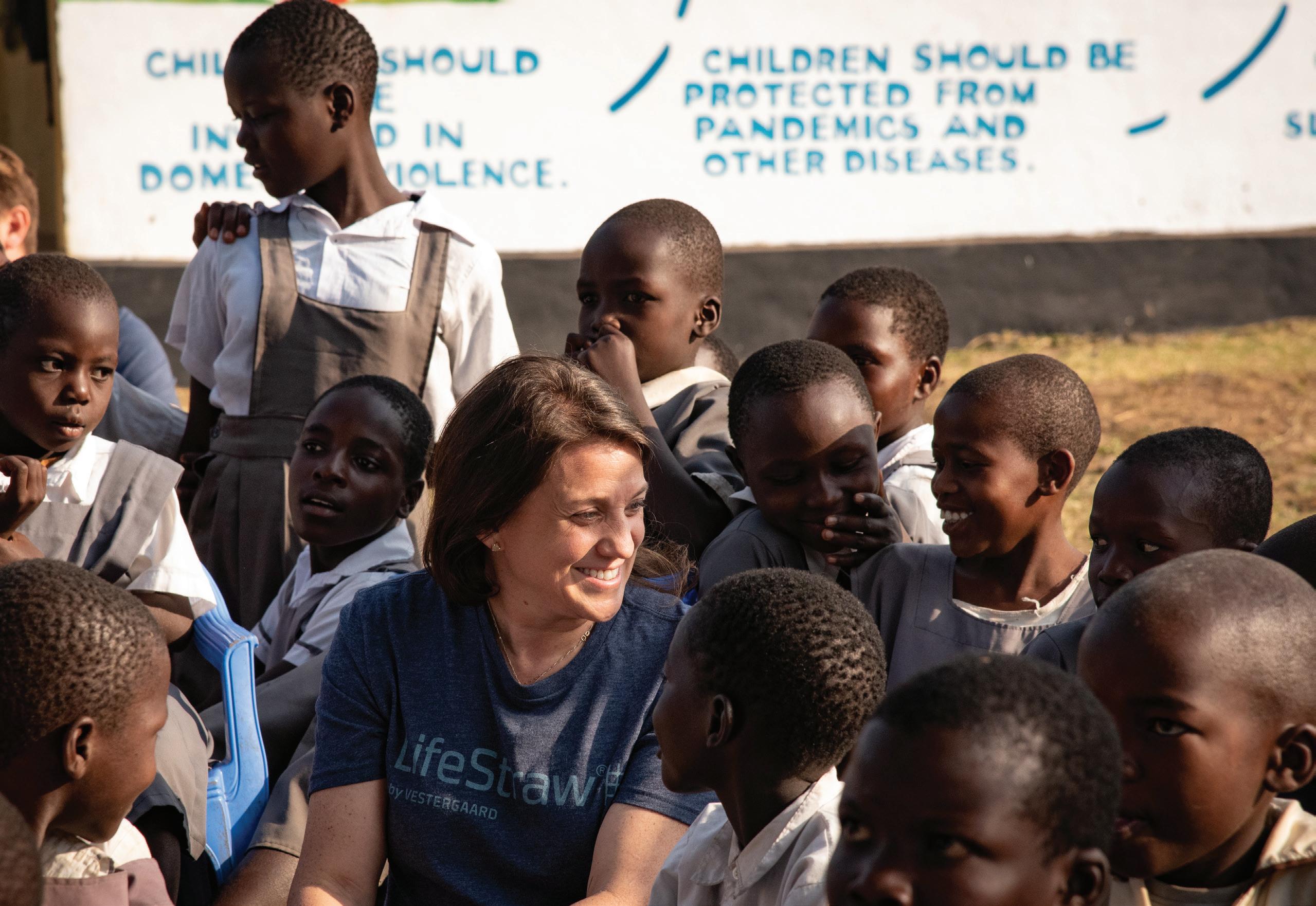
multigenerational eastern Kentuckian. We laughed, we cried, we sweated, we talked to people and listened to them. We provided safe water to families that were facing overwhelming devastation, and we lent a hand where we could to help folks with whatever they couldn’t face alone. The relationships created during moments like this last a lifetime. This grassroots approach and roll-upyour-sleeves philosophy to be part of the solution is what makes LifeStraw and our impact different.
What has continued to become apparent as we see increased needs to respond to water crises and disasters year over year is the important connection between climate change and its impact on safe drinking water. The majority of new emergencies that we responded to in 2022 were a direct result of extreme weather events brought on by our changing climate. Excessive flooding across the globe has created increased vulnerability to waterborne disease outbreaks globally. In the US, aging water infrastructure has left the systems vulnerable to the impacts of extreme weather conditions, resulting in microbiological contamination in places like Baltimore, and a general lack of access to safe water in many other regions.
In 2022, we also deepened our own commitments to the planet, completing a detailed audit of our carbon emissions, maintaining our Climate Neutral certification, setting long-term science-based targets and a roadmap to reductions, and supporting projects
designed to build climate resiliency in communities already dealing with the effects of climate change.
Our impact work goes far beyond our public health programming; it is part of everything we do. It is a foundational component of our approach to technology performance and product development, supply chain and
microplastics, in addition to heavy metal removal, and we continue to develop technologies that can address an even broader spectrum of safe drinking water issues. As a company that believes safe water is a human right, our work is about pushing the industry forward on providing the best technology and best protection.
2022 was a huge success for our commitment to impact at LifeStraw, and this year continues to build on this momentum. In early 2023, almost the entire company came together to support our Give Back program in western Kenya, working side-by-side with our 40 local Kenyan staff; we reached over 61,000 new kids with access to safe water, and ensured that the amazing support from our customers and retail partners is translated into measurable impact. Overall, our Give Back program has provided more than 7 million kids with a year of safe drinking water, and we’re just getting started!
operations strategy, retail partnerships, and marketing and brand commitments to our customers in the US and globally. We aim to build the broadest protection in our products possible, focusing especially on those most critical to child health and development. Toward this effort, LifeStraw has focused on responding to issues of emerging contamination such as PFAS (‘forever chemicals’ contamination) and
As a company founded in an effort to eradicate Guinea worm disease, we have continued our support of and commitment to The Carter Center by donating over one million Guinea worm filters in 2022 alone. I can say unequivocally that as a brand we will continue to invest in building programs and products to provide equitable access to safe drinking water. We are prepared to take on 2023 with a continued commitment to show up, in person, to listen to communities and to make water safe to drink for all.
5
REPORT
RESPONSIBILITY
“Team members from every division traveled and worked directly in the communities with local partners and families, to deliver safe water, care, and public health programming in a way that we know delivers results. It felt good.”
LifeStraw will donate over 350,000 Guinea worm filters to The Carter Center. LifeStraw is committed to supporting The Carter Center through disease eradication.
PEOPLE
CARD

LifeStraw donated 1,153,000 Guinea worm filters. There were a total of 13 human cases worldwide (down from 14 in 2021).
LifeStraw will launch three community safe water programs, including in at least one country within the top five highest global rates of waterborne disease. LifeStraw’s Give Back program will reach more than 378 new schools and provide over 1.6 million kids with safe water.
LifeStraw implemented three new community safe water projects in the Sertão, Brazil; Volta River Delta, Ghana; and Turkana, Kenya. In South Sudan, we provided initial household filters to families impacted by flooding, and will scale-up to schools in 2023.
LifeStraw’s internal Give Back program reached 438 new schools, providing safe water to over 1.5 million kids.
LifeStraw will implement an anti-jigger campaign in 14 schools in western Kenya, including disinfection, treatment and shoe distribution.
LifeStraw identified a nonprofit partner that will donate over 2,000 shoes to the children impacted by the jigger outbreaks. Implementation was delayed and will occur in 2023.
LifeStraw will design and implement a health impact study within a select group of schools of our Give Back program.
LifeStraw designed and implemented safe water impact studies in Brazil and Ghana; they will be scaled-up to our new Give Back programs in 2023.
LifeStraw will continue to scale-up domestic safe water programming including with indigenous communities, people experiencing homelessness, communities impacted by natural disasters, and other areas in the US and Canada facing water insecurity.
LifeStraw scaled-up our youth-led safe water programming in the Navajo Nation, and responded to numerous domestic water crises including in Baltimore, Kentucky, Mississippi and Puerto Rico.
commitment
SCORE
LifeStraw will continue to respond to natural disasters and emergencies and emerging and ongoing humanitarian crises.
LifeStraw responded to 17 natural disasters and emergencies reaching over 286,000 people

LifeStraw will continue to promote the advancement of women and girls through support of Emusanda Health Center, menstrual hygiene management projects, and through a continuation of providing voice and discussion for those that identify as women or non-binary in the outdoor space.
LifeStraw supported the implementation of a menstrual hygiene project in Tapachula, Mexico (which included 400 donated LifeStraw personal) and continued to support women + girls through the HIV/AIDS and maternity centers at Emusanda Health Center.
LifeStraw will recommit to our internal Think Globally, Act Locally initiative to support employee volunteerism beyond LifeStraw programming. We will afford each employee at least one workday per quarter to support local community projects, and will provide volunteer opportunities for each respective LifeStraw office. We will continue to volunteer on Giving Tuesday.
LifeStraw staff engaged in a variety of community outreach and volunteer initiatives each quarter, including park cleanups, food distribution and tree planting. Additionally, for Giving Tuesday we implemented a largescale project to support families impacted by the war in Ukraine -- including the donation of over $800,000 worth of winter, emergency and safe water supplies.
In consultation with an external racial equity, diversity and inclusion consultant, LifeStraw will conduct an internal cultural audit and needs assessment and implement a DEI roadmap and strategy. LifeStraw will also relaunch our internal DEI committee.
In partnership with an external DEI consultant, LifeStraw conducted an internal DEIJ audit. We also relaunched our DEI committee.
LifeStraw will set targets, measure and report on the progress of our new vendor policy to ensure procurement of women-owned, BIPOC-owned, persons with disabilities-owned and other diverse vendors.
LifeStraw measured and reported on the progress of our new vendor policy; we will set targets in 2023. We also created a sustainability and impact survey for current vendors, which will be incorporated into new vendor selection going forward.
LifeStraw will continue to track and report on diversity, inclusivity, and representation in our marketing; we will ensure that over 50% of influencers and content creators identify as BIPOC, women, LGBTQ+, persons with disabilities, different body sizes, and other historically underrepresented groups.
LifeStraw continued to track and report on DEI in our marketing. 87% of our creators identified as female; 23% identified as BIPOC; and 6% identified as LGBTQ+.
PLANET

LifeStraw will launch a content and storytelling series on water justice issues across the globe.
LifeStraw launched an ongoing ‘domestic safe water’ storytelling and advocacy series on social, including coverage of the devastating flooding in Kentucky; the water crisis in Baltimore; and the water crises and our youth-led project in the Navajo Nation.
LifeStraw will measure and offset all 2021 company greenhouse gas emissions.
LifeStraw will finalize its science-based targets and roadmap for reductions of greenhouse gas emissions from Scopes 1, 2 and 3, in alignment with the outdoor industry goal of climate positivity by 2030.
LifeStraw will launch a water conservation and stewardship initiative, to set targets for and report on water use and protection across our entire supply chain.
LifeStraw measured and offset all of our 2021 scopes 1, 2 and 3 emissions (a total of 6,041 tCO2); we continue to be a Climate Neutral company.
LifeStraw developed our short- and longterm science-based targets, and developed a roadmap for GHG emissions reductions across our entire company.
LifeStraw optimized our operations in our water lab, saving over 100,000 liters of water. We worked with external consultant and researched water conservation and stewardship best practices, but have not yet set internal targets.
LifeStraw will certify all Tier 2 suppliers for Sedex SMETA certification.
LifeStraw maintained Sedex SMETA certifications for all Tier 1 suppliers; we will certify Tier 2 suppliers in 2023.
LifeStraw will launch a new outdoor line with 100% sustainable, plastic-free packaging. For products that currently require plastic to maintain filter integrity, we will continue to research 100% recyclable or reusable alternatives. We will also establish an internal Sustainable Packaging Task Force to push through roadblocks.
LifeStraw will launch a new product line made with post-consumer recycled material.
LifeStraw will continue to research lowpressure virus removal technology, as well as removal of lead, heavy metals and other emerging water contaminants. We will continue to work on developing new humanitarian products.
LifeStraw will launch implementation of the new LifeStraw Max purifier in at least ten low-resource, humanitarian and disaster relief settings.
LifeStraw launched a new outdoor line with 100% sustainable, plasticfree packaging. We also created a new internal Sustainable Packaging Task Force, which meets biweekly to guide sustainable packaging research and decisions. We identified sustainable alternatives for the Home product line packaging, to be implemented in 2023.

LifeStraw launched a new outdoor product line made with 50% post-consumer recycled materials.
LifeStraw continued to research new technologies, including low-pressure virus removal and other emerging water contaminants, to address a variety of humanitarian needs.
LifeStraw launched implementation of the new LifeStraw Max high-volume purifier in 8 countries facing natural disasters and humanitarian crises.


USING BUSINESS AS A FORCE FOR GLOBAL GOOD.
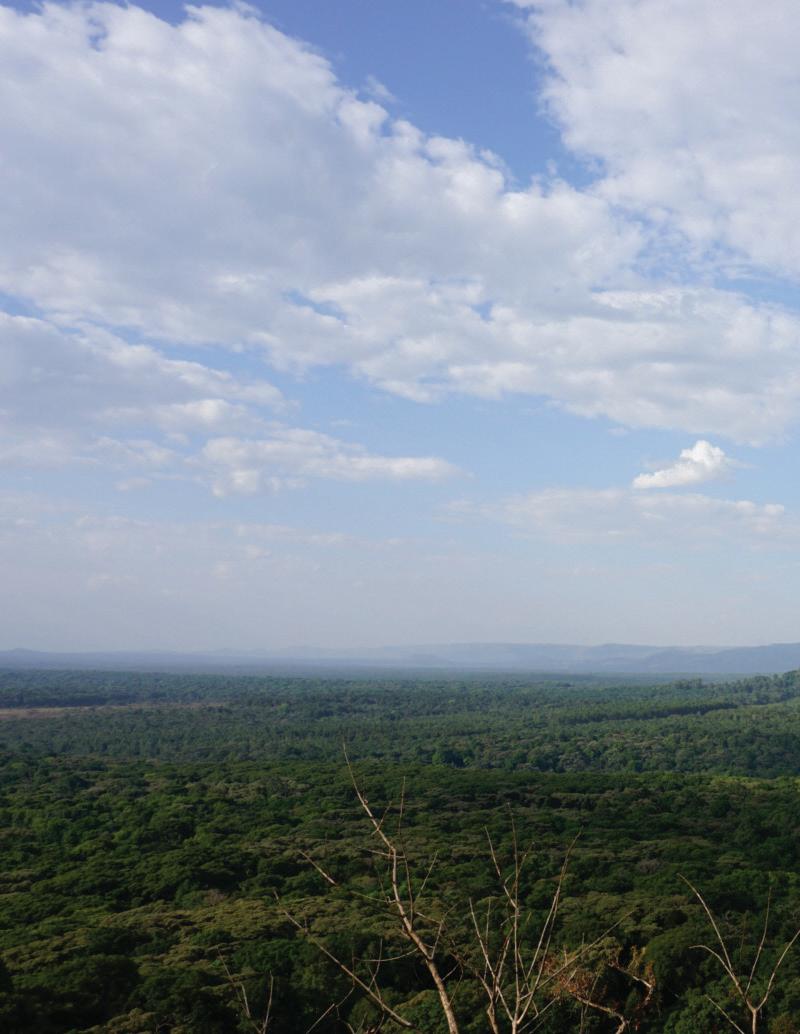
12
In 2021, LifeStraw proudly became a Certified B Corporation and joined a community of businesses that are transforming the global economy to benefit all people, communities, and the planet.
While LifeStraw was founded on the principles of doing good, as a B Corp we are even more committed to accounting for the impact of our decisions on all our stakeholders – our workers, customers, suppliers, communities and the environment.

And where we fell short in the assessment, we have committed to bettering our practices, to improving our score and ultimately our impact. In 2022, we focused on analyzing and evaluating our strengths and shortcomings, and in 2023 we will be developing a roadmap to improve our policies and processes.
OUR B CORPS SCORE IN 2021 WAS 96.5
13 RESPONSIBILITY REPORT





COMMUNITY
community development, household, and school safe water programs
TOTAL PEOPLE REACHED WITH SAFE DRINKING WATER IN 2022:
3,316,672
funded by other partners humanitarian crises + natural disasters guinea worm eradication

PEOPLE
PARTNERSHIP HUMANITARIAN GUINEA WORM
1,153,000
LIFESTRAW GUINEA WORM FILTERS DONATED TO THE CARTER CENTER IN 2022.
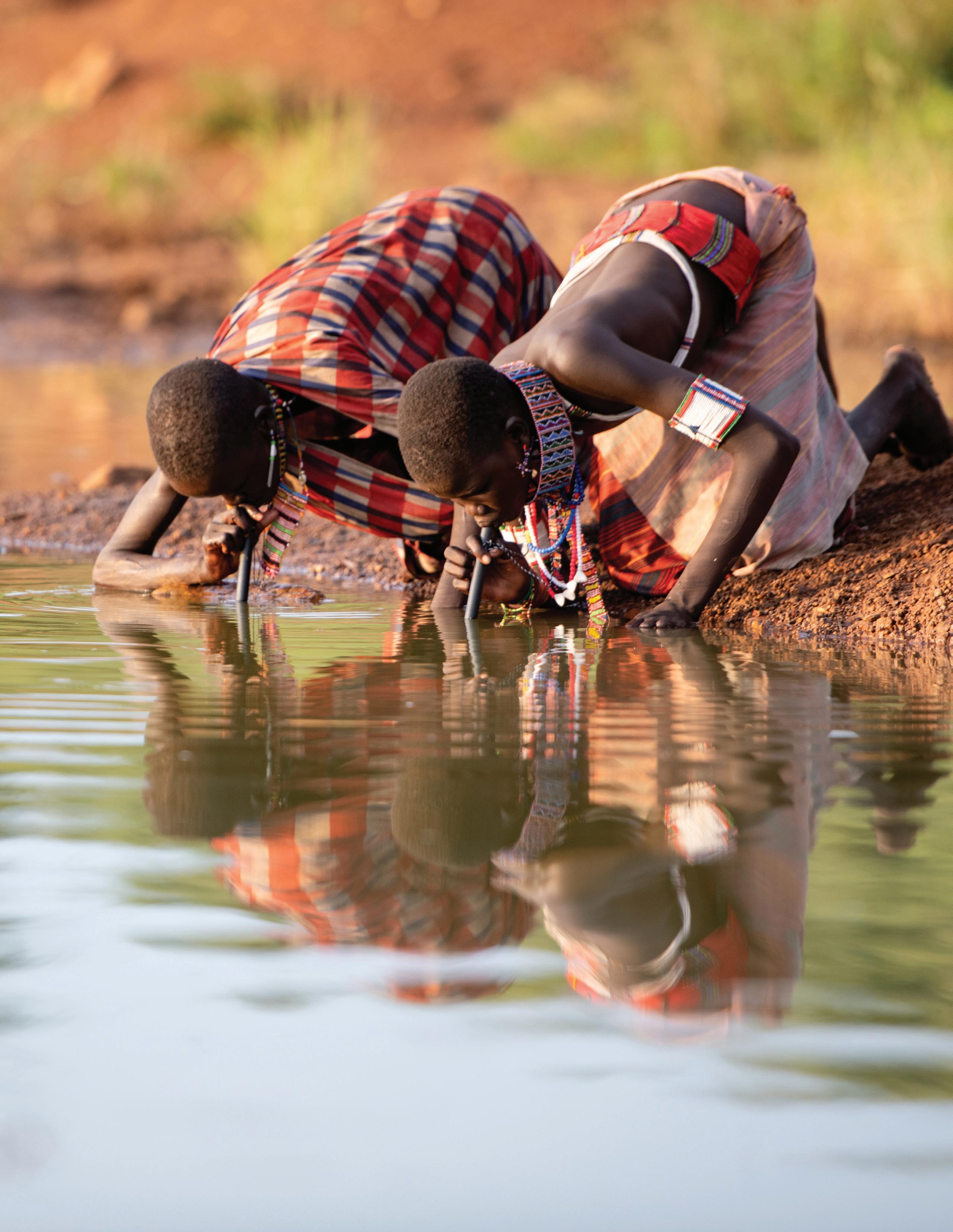
13 CASES
IN ONLY FOUR COUNTRIES IN 2022.
GUINEA WORM ERADICATION
WHAT IS GUINEA WORM DISEASE?
Guinea worm is a painful, parasitic infection that is contracted when people consume water from stagnant sources contaminated with Guinea worm larvae. Inside a human’s abdomen, Guinea worm larvae mate and female worms grow. After a year of incubation, the female Guinea worm (now three feet in length), slowly emerges from the human body, creating an agonizingly painful lesion on the skin. Guinea worm incapacitates people for extended periods of time, leaving them unable to care for themselves, work, grow food or attend school, further exacerbating the impact of the disease.
GUINEA WORM ERADICATION RESPONSE
1986: 3.5M CASES IN 21 COUNTRIES
Since 1986, when The Carter Center Guinea worm eradication program was established, the nonprofit has worked tirelessly with ministries of health to stop the spread of the disease by providing health education
and community-based interventions. Thanks to these efforts, today the number of cases has been reduced by more than 99.99 percent.
1994: 100K CASES IN 18 COUNTRIES
In 1994, LifeStraw partnered with The Carter Center to design a simple mesh filter to remove Guinea worm larvae from drinking water.
2022: 13 CASES IN FOUR COUNTRIES
In 2022, LifeStraw donated 1,153,000 LifeStraw Guinea worm filters to The Carter Center. There were only 13 reported human cases globally – a 13% reduction from last year and an alltime low.
When Guinea worm is eradicated, it will be the first disease to be removed from the planet without the use of a vaccine.
LIFESTRAW IS COMMITTED TO SUPPORTING THE CARTER CENTER THROUGH ERADICATION.
IMPACT: PEOPLE 21
PEOPLE
2,697
SCHOOLS SUPPORTED IN 2022
1,588,879
KIDS WITH A YEAR OF SAFE WATER IN 2022
SINCE ITS INCEPTION IN 2014, THE LIFESTRAW GIVE BACK PROGRAM HAS PROVIDED
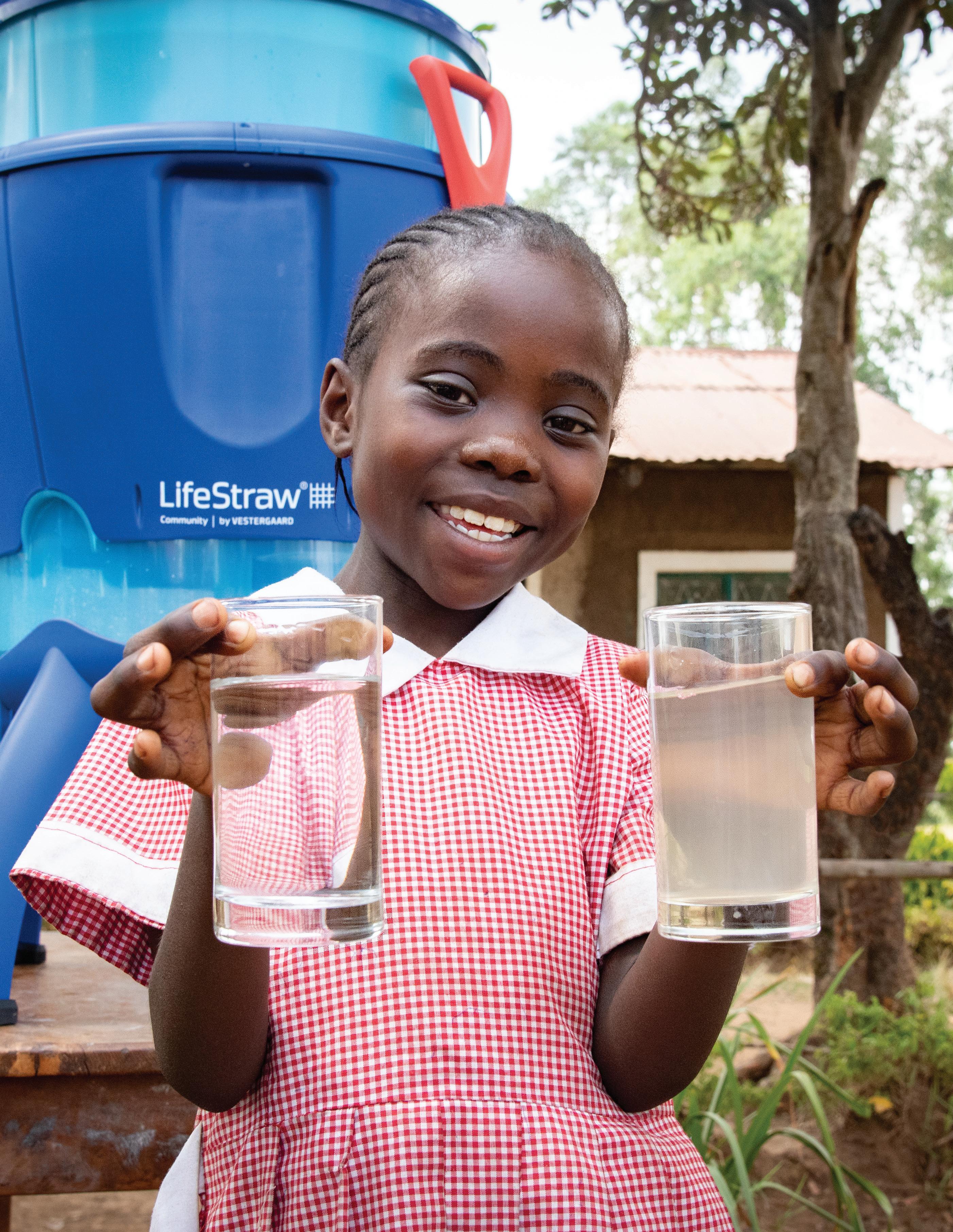
7,478,909
KIDS WITH A YEAR OF SAFE WATER.
GIVE BACK PROGRAM
FOR EVERY LIFESTRAW PRODUCT PURCHASED, A CHILD IN NEED RECEIVES SAFE DRINKING WATER FOR A YEAR.
HOW IT WORKS?
One LifeStraw Community purifier provides approximately 100 kids with safe water for an entire year. When a consumer purchases any LifeStraw product, a portion of that profit helps to fund the distribution of a LifeStraw Community to a school for a period of 5 years, as well as training, education, maintenance, and spare parts.
HOW IS OUR PROGRAM UNIQUE?
We don’t just drop off products. We provide on-site education and training, and year-round support to build and maintain relationships with our schools and communities, and to ensure the purifiers are properly used and maintained.
We make a five-year commitment to every school. We commit dedicated staff and resources to ensure our program is sustainable for the long-term. We renew the five-year commitments until schools themselves are able to provide safe water to all students.
We hire locally. In western Kenya, we employ 40 full-time staff to ensure year-round training and education, implementation, and product maintenance and support. All programs are managed by local staff that come from the communities they support.
IMPACT: PEOPLE 23
PEOPLE
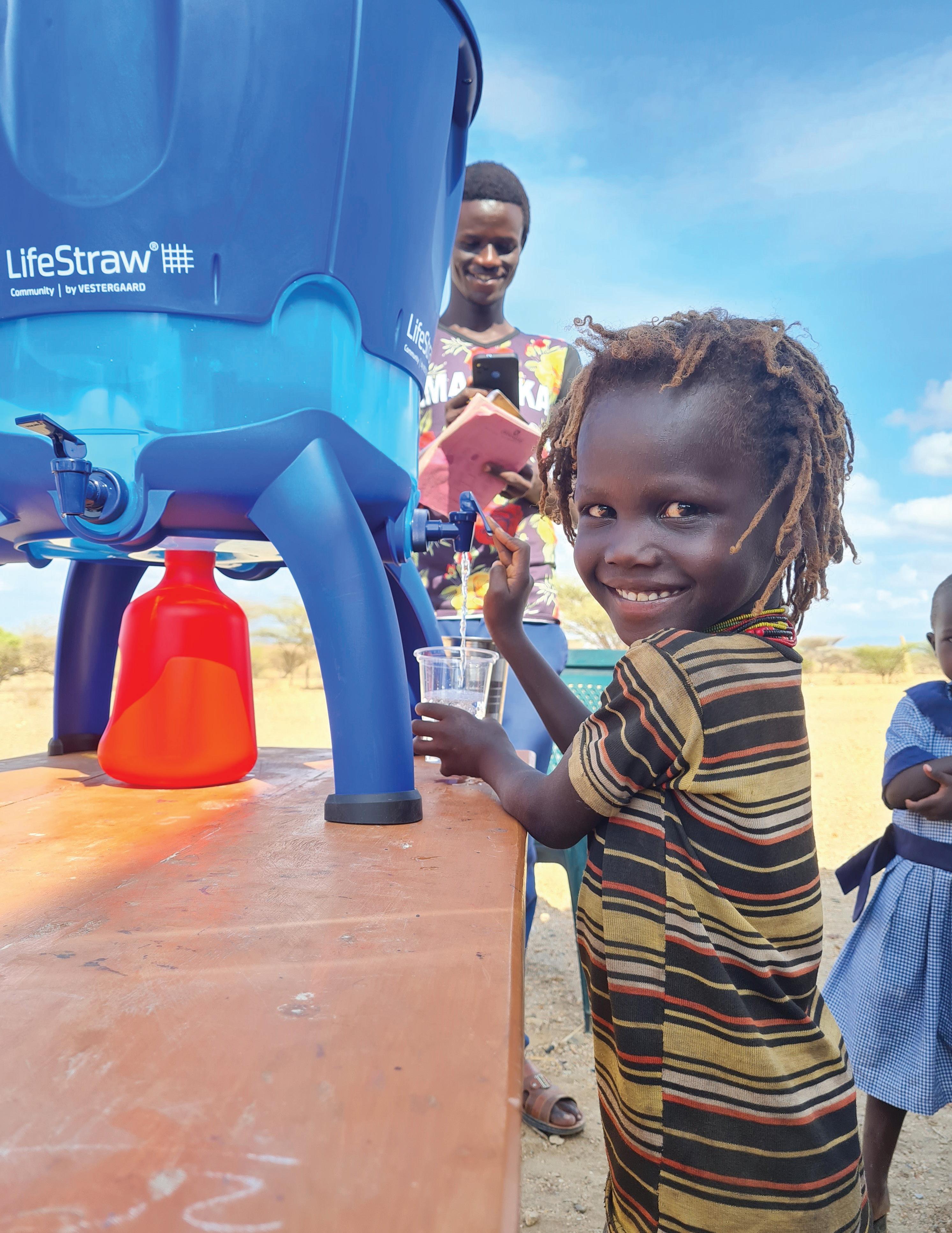
60,718 DONATED LIFESTRAW COMMUNITY PURIFIERS EARLY CHILDHOOD EDUCATION CENTERS KIDS WITH SAFE WATER 589 438
IMPACT: SAFE WATER FOR 438 EARLY CHILDHOOD CENTERS
LOCAL PARTNER: MARY’S MEALS PROVIDING FEED PROGRAMS ALONGSIDE SAFE WATER
TURKANA, KENYA
GIVE BACK PROGRAM IN DROUGHT AND FAMINE STRICKEN REGION
The Turkana region in northern Kenya has experienced its worst drought in 40 years, which has wiped out livestock and crops, deepening a hunger crisis. The region is amongst many vulnerable communities most devastatingly impacted by global climate change yet least responsible for global carbon emissions.
Drinking water is scarce, and the water that is available is often unsafe to drink – leading to high rates of diarrhea and worsening malnutrition.
In 2022, LifeStraw partnered with Mary’s Meals – a nonprofit that has been working in Kenya since 2005 to
ensure children have enough to eat and receive proper education. While meeting the need for food in the schools, they noted a gap in the provision of safe water for school children.
As an extension of our Give Back program, LifeStraw implemented a school safe water program, ensuring access to safe drinking water for 80% of the early childhood schools that Mary’s Meals supports. A team of LifeStraw staff traveled to the region to install the purifiers and provide training and demonstration sessions with teachers and children.
PEOPLE 25
IMPACT:
PEOPLE
A FOCUS ON WOMEN AND GIRLS
Water inequities disproportionately impact women and girls. In eight of 10 households, women are charged with water collection, and often face violence along the far routes. Moreover, women and girls require safe water, sanitation and additional resources to address their menstrual hygiene management needs and are at higher risk for waterborne diseases and bacterial infections transmitted by contaminated water and poor sanitation and hygiene practices.
LifeStraw is dedicated to supporting and empowering women and girls in our programming through:

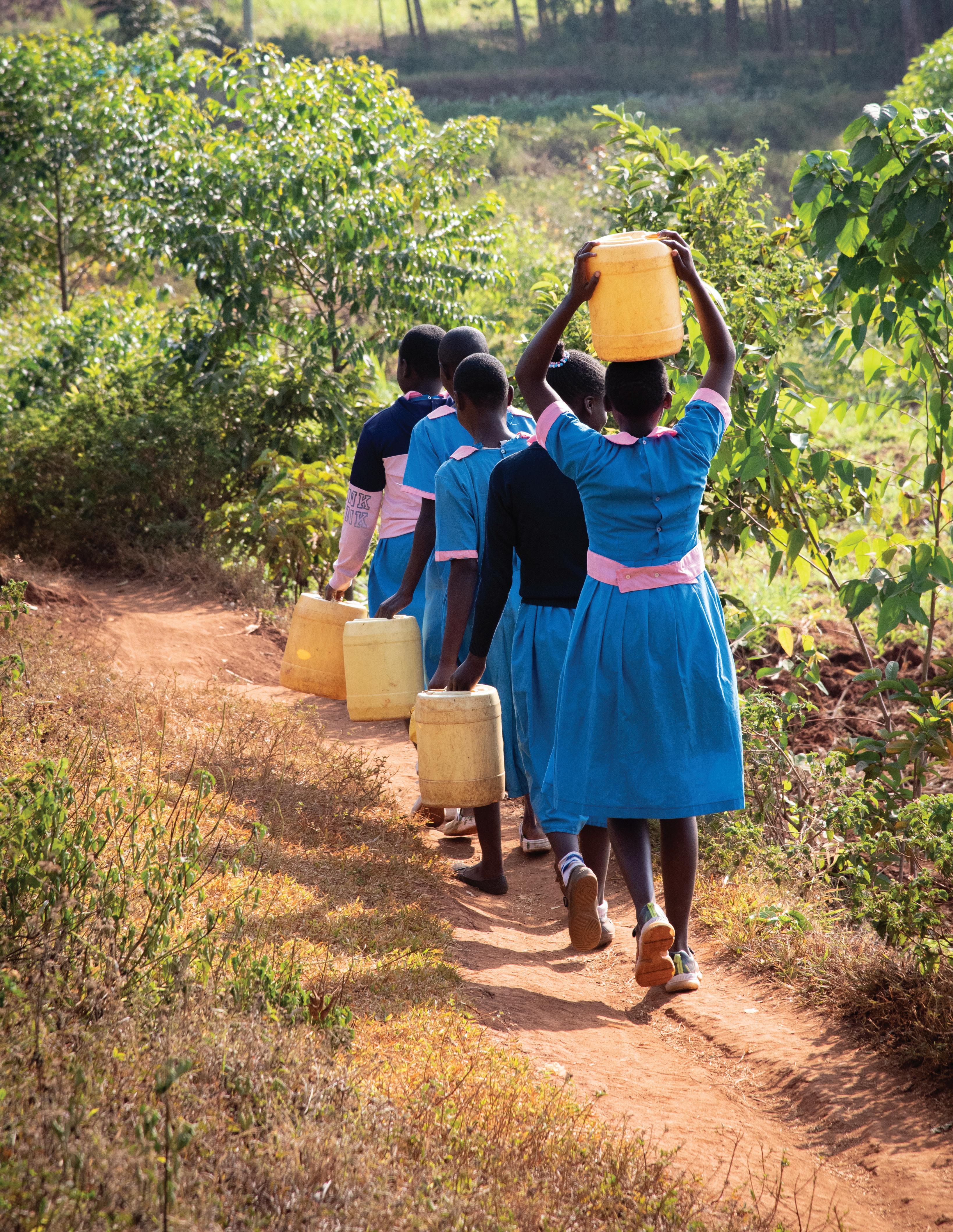
• Employment of local women and creation of women leaders.
• Empowerment of local women’s groups.
• Support of menstrual hygiene management through resource distribution and reusable pad workshops.
• Emphasis on shared responsibilities among all genders for water collection and purifier care and maintenance at schools.
EMUSANDA HEALTH CLINIC, KENYA
Since 2008, LifeStraw and former parent company, Vestergaard, have supported Emusanda Health Center in Lurambi, Kenya. The clinic provides primary, maternal, newborn and pediatric care, as well as comprehensive HIV testing, counseling and treatment to the local community. In 2017, we supported the construction of a 12bed maternity ward, equipped with technologies previously unavailable in the region.
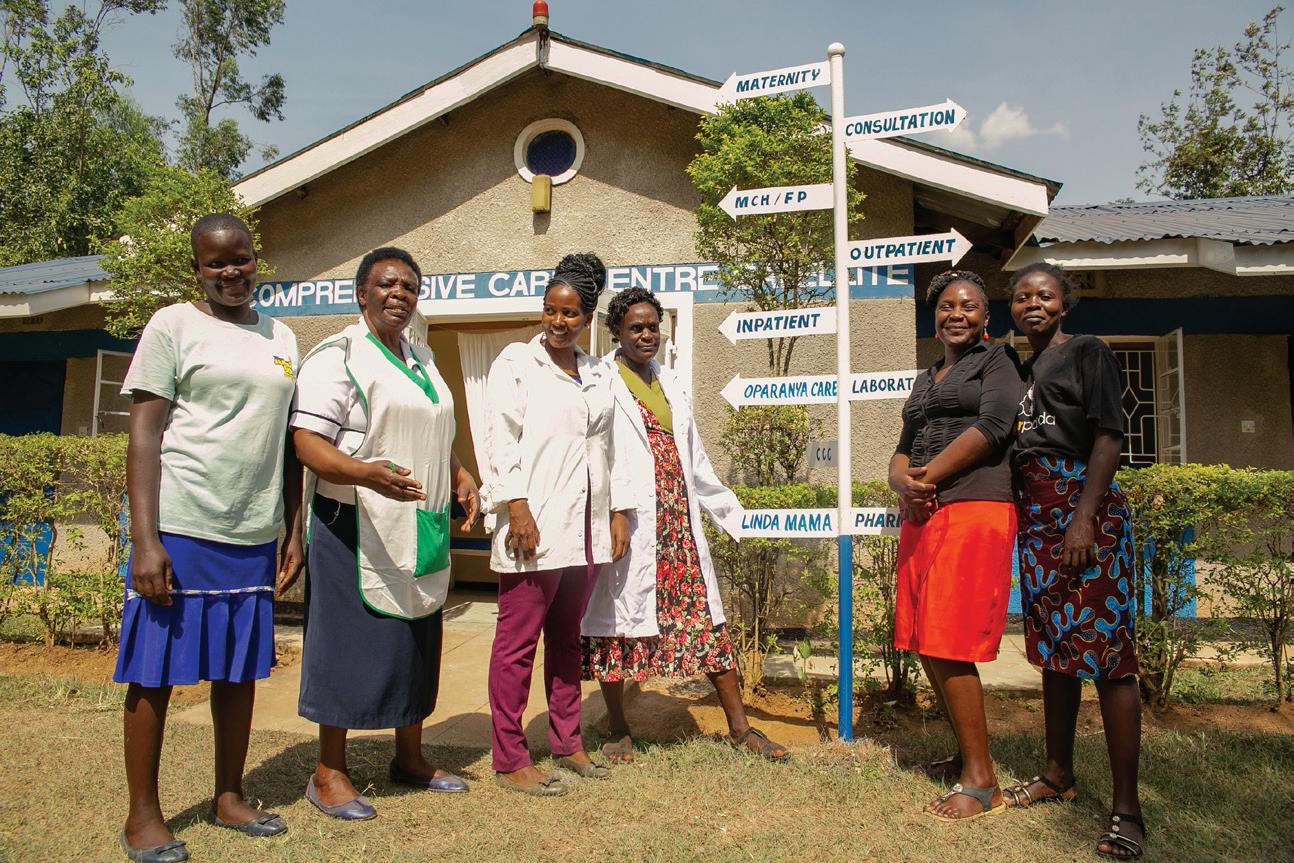
TOTAL CLIENTS TESTED FOR HIV: 739
(INCLUDING 330 PREGNANT WOMEN)
TOTAL ANTENATAL VISITS: 1,785
TOTAL POSTNATAL VISITS: 770
TOTAL FAMILY PLANNING VISITS: 1,675
TOTAL WELL-CHILD VISITS: 3,686
TOTAL FACILITY BIRTHS: 277
TOTAL CHILDREN TESTED FOR MALARIA: 6,213
TOTAL CHILD VISITS FOR DIARRHEA: 253
EMUSANDA 2022 HIGHLIGHTS
• Provided consistent access to medication for opportunistic infections for people living with HIV/AIDS.
• Provided maternity open house days, during which women are sensitized on the importance of ANC/PNC care.
• Increased facility-based deliveries by 52% since 2021.
• Reduced complications during delivery.
• Increased the number of women attending ANC and PNC visits. Increased the number of children receiving timely immunizations.
• LifeStraw and Vestergaard also donate LifeStraw Family household purifiers and PermaNet mosquito nets to pregnant women and children under 5, which has contributed to significant reductions in cases of malaria and diarrhea.
IMPACT: PEOPLE 27
PEOPLE
24,120
38,222 FILTERS + PURIFIERS
15
$800,000
OF WINTER GEAR PROVIDED PEOPLE REACHED in partnership with including Nomadix, Burton, Ledlenser + Delsey Paris
PROVIDED LOCAL PARTNER ORGANIZATIONS FOR DISTRIBUTION

PARTNER HIGHLIGHT:
UNLOCKING COMMUNITIES IS A NONPROFIT SOCIAL ENTERPRISE FOCUSED ON EMPOWERING INDIVIDUALS AND COMMUNITIES TO UNLOCK THEIR ECONOMIC POTENTIAL THROUGH ENTREPRENEURIAL VENTURES. WHILE THEIR MAIN PROGRAMMING IS IN HAITI, UC RESPONDS TO CRISES ACROSS THE GLOBE. THE UNLOCKING COMMUNITIES’S TEAM HAS BEEN A PIVOTAL PARTNER FOR LIFESTRAW’S RESPONSE IN UKRAINE.
UKRAINE
SUPPORT TO INTERNALLY DISPLACED COMMUNITIES AND INDIVIDUALS AFFECTED BY WAR
Russia’s invasion of Ukraine in February 2022 has created one of the biggest refugee crises of modern times. Over eight million people –approximately 19% of the population – have fled Ukraine, while over seven million people have been displaced within the country.
Russia continues to deliberately target civilians, residential buildings, hospitals and essential infrastructure, leaving many without adequate food, electricity or drinking water.
SAFE WATER RESPONSE
LifeStraw responded immediately to the crisis. In 2022, we partnered with over 15 different organizations and local community groups, to ship 24,120 filters and purifiers to Ukraine and bordering countries, reaching over 38,222 people with safe drinking –
including internally displaced civilians, frontline workers and volunteers, and Ukrainian soldiers.
WINTER RESPONSE
This winter, Ukraine has also faced temperatures as low as -20C this winter – exacerbating the humanitarian crisis. Vulnerable groups, such as displaced communities, young children and elderly people are among the most affected.
In response, LifeStraw – in partnership with Unlocking Communities, nonprofit Airlink, and other amazing brands including Nomadix, Burton, Ledlenser and Delsey Paris – shipped over $800,000 of winter gear to Ukraine. These product are being distributed to displaced families and soldiers to help survive the elements.
IMPACT: PEOPLE 29
PEOPLE
1,300
FILTERS TO MIGRANTS AND ASYLUM SEEKERS
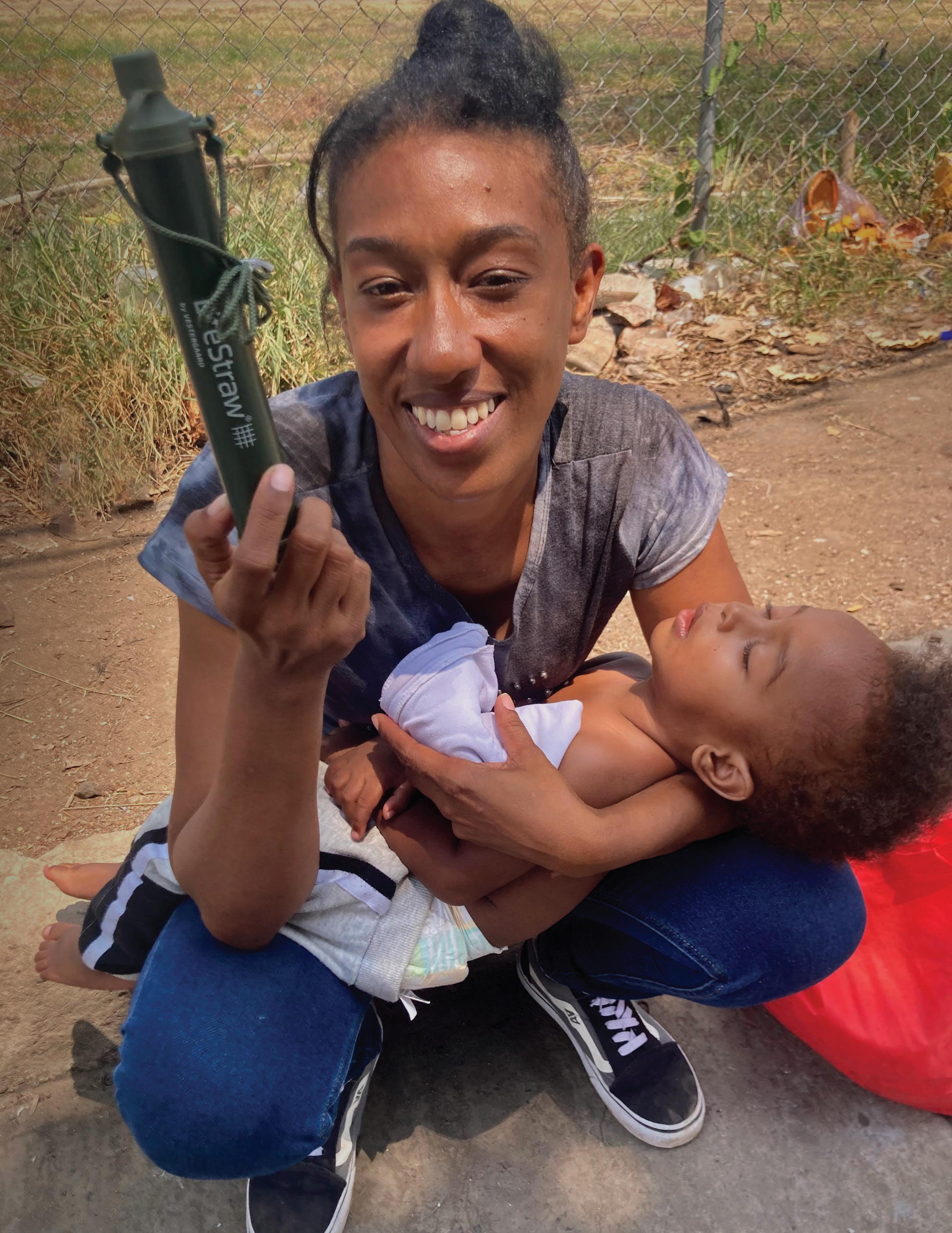
MEXICO
SUPPORT TO MIGRANT POPULATIONS WITHOUT ACCESS TO SAFE WATER
ISSUE:
WATER ALONG THE MIGRANT TRAIL
LOCAL PARTNER: GREEN VALLEY-SAHUARITA SAMARITANS, SOLIDARITY ENGINEERING
At any given time, thousands of people are journeying north across Mexico, from their home countries in Central America, as well as Haiti and across Africa, to seek asylum in the US. The majority are fleeing to escape high rates of violence, gangs, drug trafficking, political insecurity, food insecurity and extreme poverty. Increasingly, much of the displacement is also driven by climate change.
The 2,000-3,000 mile trek is arduous and incredibly dangerous. Women and girls are at even higher risk for violence, rape, kidnapping and illness. Add to that, many face significant hygiene deprivation, including lack of access to basics like clean water and menstrual hygiene management. Children along the migrant trail, who are often already malnourished, are at higher risk for waterborne disease from lack of access to safe drinking water.
In response to the ongoing refugee crisis in Mexico, LifeStraw has partnered with several organizations, to distribute filters and ensure access to safe water. We donated 1,000 personal filters to Green Valley-Sahuarita
Samaritans, who provide safe water and other essentials to asylum-seekers crossing the Sonoran Desert. We also donated 350 personal filters to nonprofit Solidarity Engineering, which were distributed along with hygiene kits to asylum seekers in Tapachula –the main receiving city for refugees on the southern border of Mexico, where asylum seekers often wait for months while their paperwork gets processed to continue on.
After conducting interviews with migrants at the US border, it is evident that many have critical needs long before they enter Mexico – specifically through the Darien Gap, an extremely treacherous journey through dense jungle between Panama and Colombia.
Migrants stated that, “If water filters were provided before hiking through the Darien Gap, it would literally save lives”.
In 2023, LifeStraw will be supporting Solidarity Engineering’s initiative to provide water filters, hygiene kits and other supplies to migrants beginning their journey through the Darien Gap.
IMPACT: PEOPLE 31
PEOPLE
SAFE WATER IMPACTS FROM CLIMATE CHANGE
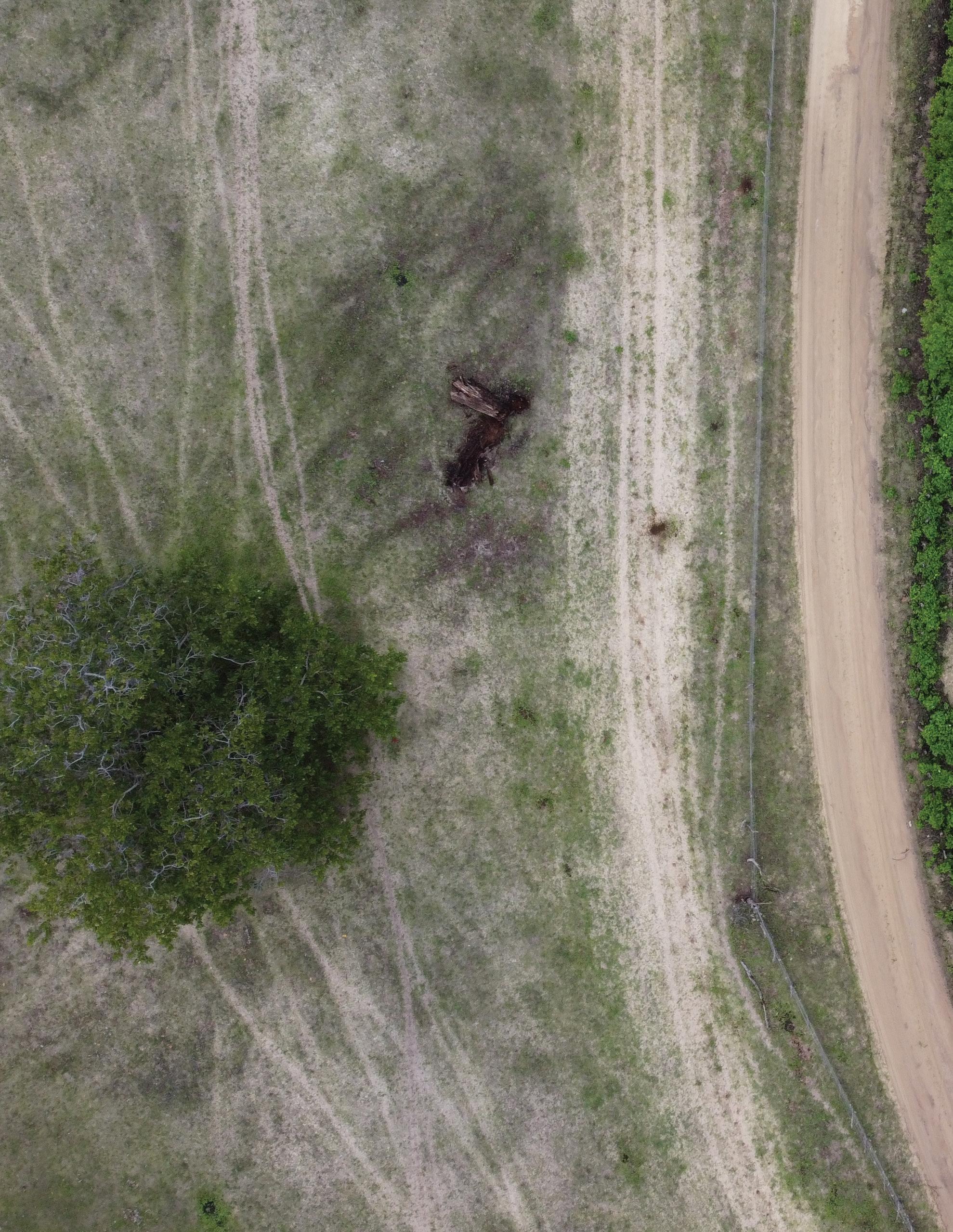
Climate change represents the most significant challenge to this century and poses huge risks to access to safe drinking water across the globe. The disruption in weather patterns has resulted in extreme weather events including flooding and drought – making water scarcity more common and severe and contaminating available water supplies.
LifeStraw works with communities across the globe to help mitigate these impacts.
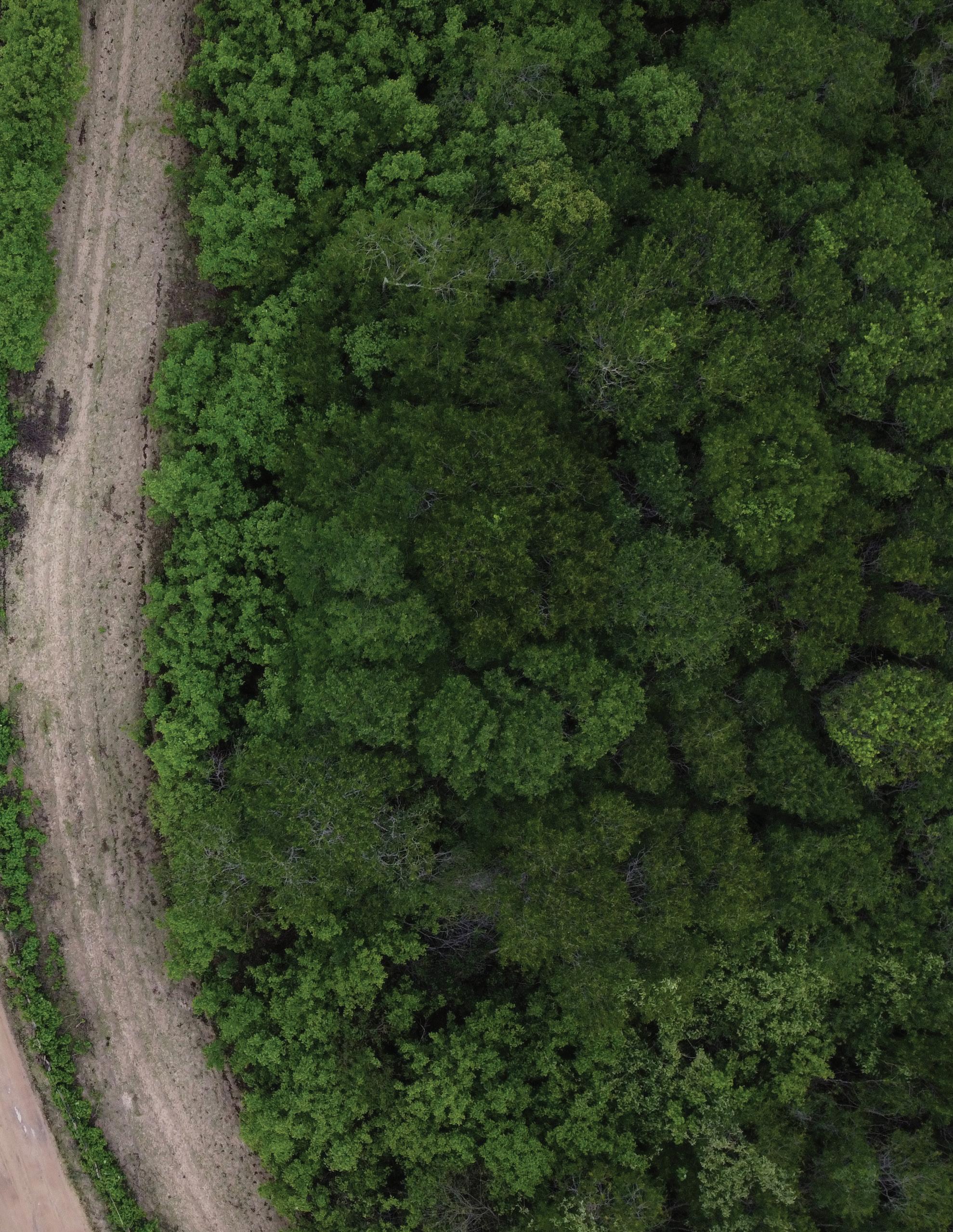
RESPONSIBILITY REPORT
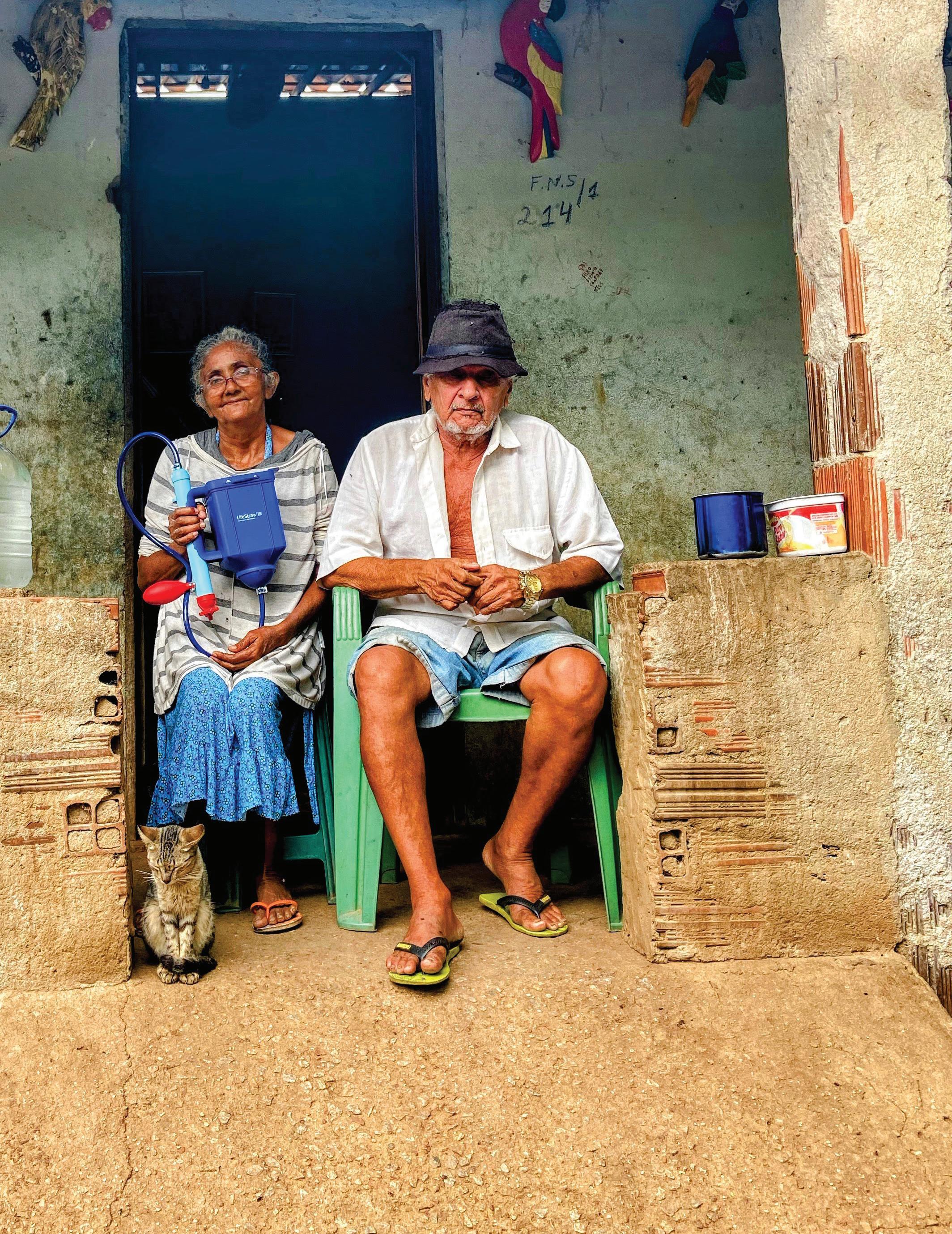
FAMILIES IMPACTED SCHOOLS WITH ACCESS TO WATER PURIFICATION
438 4
ISSUE:
CLIMATE CHANGE’S IMPACT ON WATER: DROUGHT
LOCAL PARTNER: MISSÃO ALCANCE
BRAZIL
RESPONSE TO CLIMATE CHANGE INDUCED DROUGHTS
The Sertão, a vast desert region located in Northeast Brazil, has been greatly impacted by climate change. The area has suffered from decades of drought, and has very long (and worsening) annual dry seasons. The majority of the groundwater is too salty for consumption, and public water infrastructure is virtually nonexistent. Some households have cisterns or rainwater catchment systems, but the rainwater is not safe to drink without treatment. Additionally, most families’ livelihoods are dependent exclusively on agriculture (particularly cashew farming), which has also been severely impacted by droughts.
In January, in partnership with US nonprofit Gateway Outreach and local organization Missão Alcance, a team of LifeStraw staff traveled to the Sertão to distribute 438 LifeStraw Family to households and 5 LifeStraw Community to four local schools.
With the support of a University of Maryland graduate student, we also conducted a WASH needs assessment with 114 households and all four schools. The study found that 51% of families lacked access to any household water at least once per year; only 9.5% sufficiently treat their drinking water; and rates of diarrhea are high, especially during rainy season.
IMPACT:
PEOPLE 35
PEOPLE
HOUSEHOLD WATER PURIFIERS PROVIDED

382 PEOPLE REACHED
1,900
ISSUE: CLIMATE CHANGE’S IMPACT ON WATER: FLOODING
LOCAL PARTNER: ALASKA HEALTH PROJECT (AHP)
SOUTH SUDAN
RESPONSE TO CLIMATE CHANGED INDUCED FLOODING
The devastation from the war in Ukraine reaches far beyond its borders. 3,000 miles away, South Sudan is suffering from the resulting global soaring food and fuel prices, and diminished funding to and support from organizations like the UN World Food Program (WFP). WFP has been forced to suspend food assistance for over 1.7 million people in South Sudan alone, due to funding shortfalls and reallocations.
South Sudan is also on the front line of climate change. An already fragile country roiled by conflicts since it gained independence from Sudan in 2011 – South Sudan has been suffering from unprecedented rainfall for almost three years. The resulting
devastating flooding has submerged the surrounding lands, along with the farms and homes on it. The floods have affected 33 of the nation’s 79 counties, and more than 835,000 people have been impacted – many of whom are subsistence farmers and are now facing food insecurity and famine.
In immediate response to the severe flooding, we have distributed 382 LifeStraw household purifiers to some of the hardest to reach communities, in partnership with Alaska Health Project (AHP).
In 2023, we will be working with AHP and local community members to implement longer-term, sustainable WASH solutions.
PEOPLE 37
IMPACT:
PEOPLE
6 SCHOOLS WITH ACCESS TO SAFE WATER
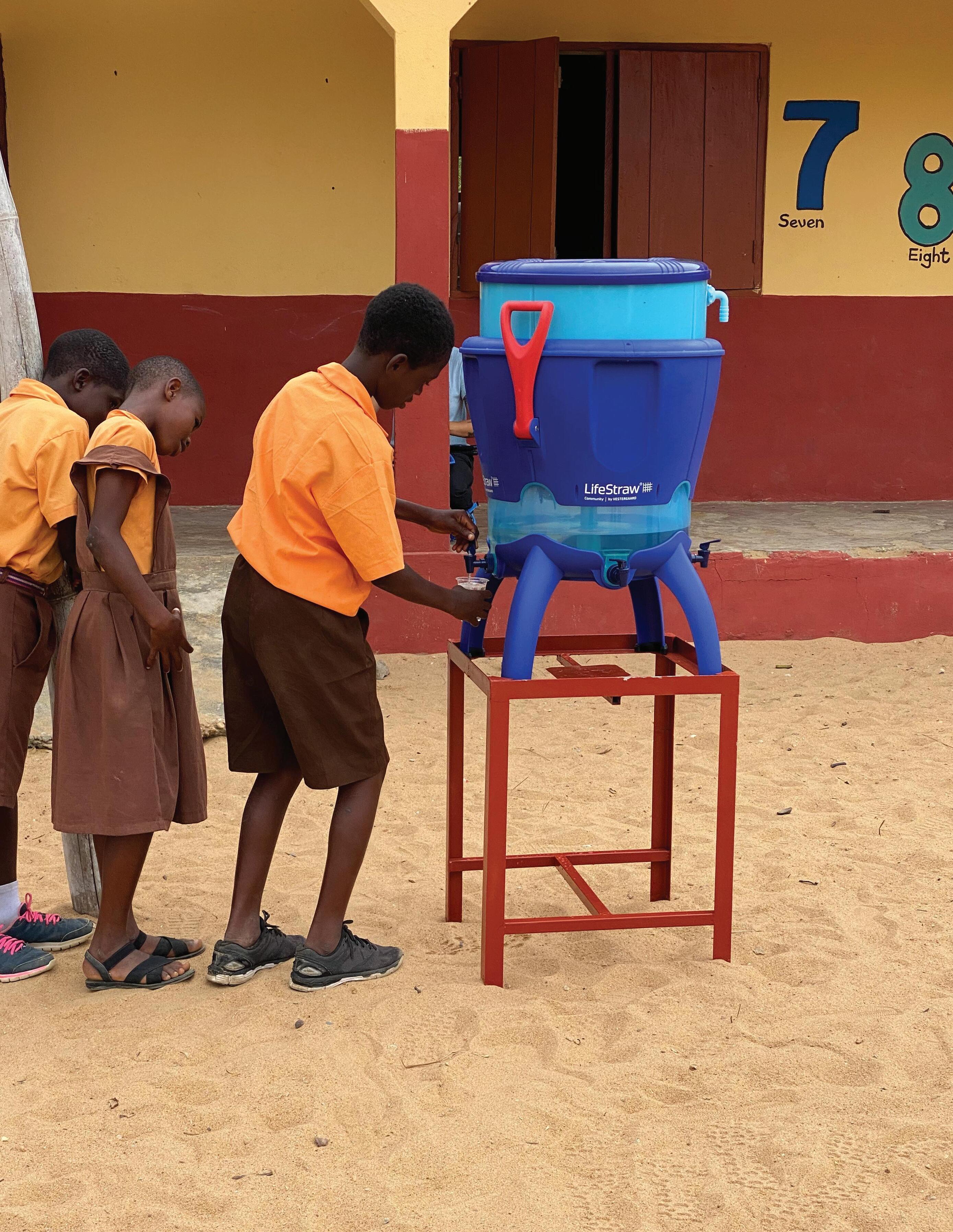
140 HOUSEHOLD WITH ACCESS TO SAFE WATER
10,000+ PEOPLE REACHED
GHANA
SAFE WATER AND CLIMATE RESILIENCY IN THE VOLTA
REGION
PARTNER HIGHLIGHT:
Nearly all communities situated along the Volta River delta depend on the river’s contaminated waters for all their water needs. The river has been confirmed to have E. coli, fecal matter, oil and chemical pollutions, and studies have demonstrated extremely high rates of waterborne illnesses, especially among children.
In September, a team of LifeStraw and VRF staff traveled to the Volta River region to implement our first annual Water is Life project. The team held community meetings, and provided extensive education and technical training in conjunction with the installation of 13 LifeStraw Community purifiers in six schools and 140 household filters for respective families – reaching over 10,000 community members with safe drinking water.
WATER IS LIFE IMPACT
The long-term goal of this project is not only to directly impact the health of students, but to encourage families to choose education over labor for their children. Short term follow-up with the participating Water is Life schools already demonstrated both a significant increase in student enrollment and reported decrease in waterborne disease.
“My child is back to school and very healthy because of drinking from the LifeStraw water purifier” – a community member at Wokumagbe.
“Our population of 416 students has risen to 516, thanks to VRF and LifeStraw” – Head Teacher at Wokumagbe
IMPACT: PEOPLE 39
VOLTA REVIVAL FOUNDATION IS A GRASSROOTS NONPROFIT WORKING TO END CHILD TRAFFICKING AND FORCED LABOR THROUGH HOLISTIC COMMUNITY EMPOWERMENT.
PEOPLE


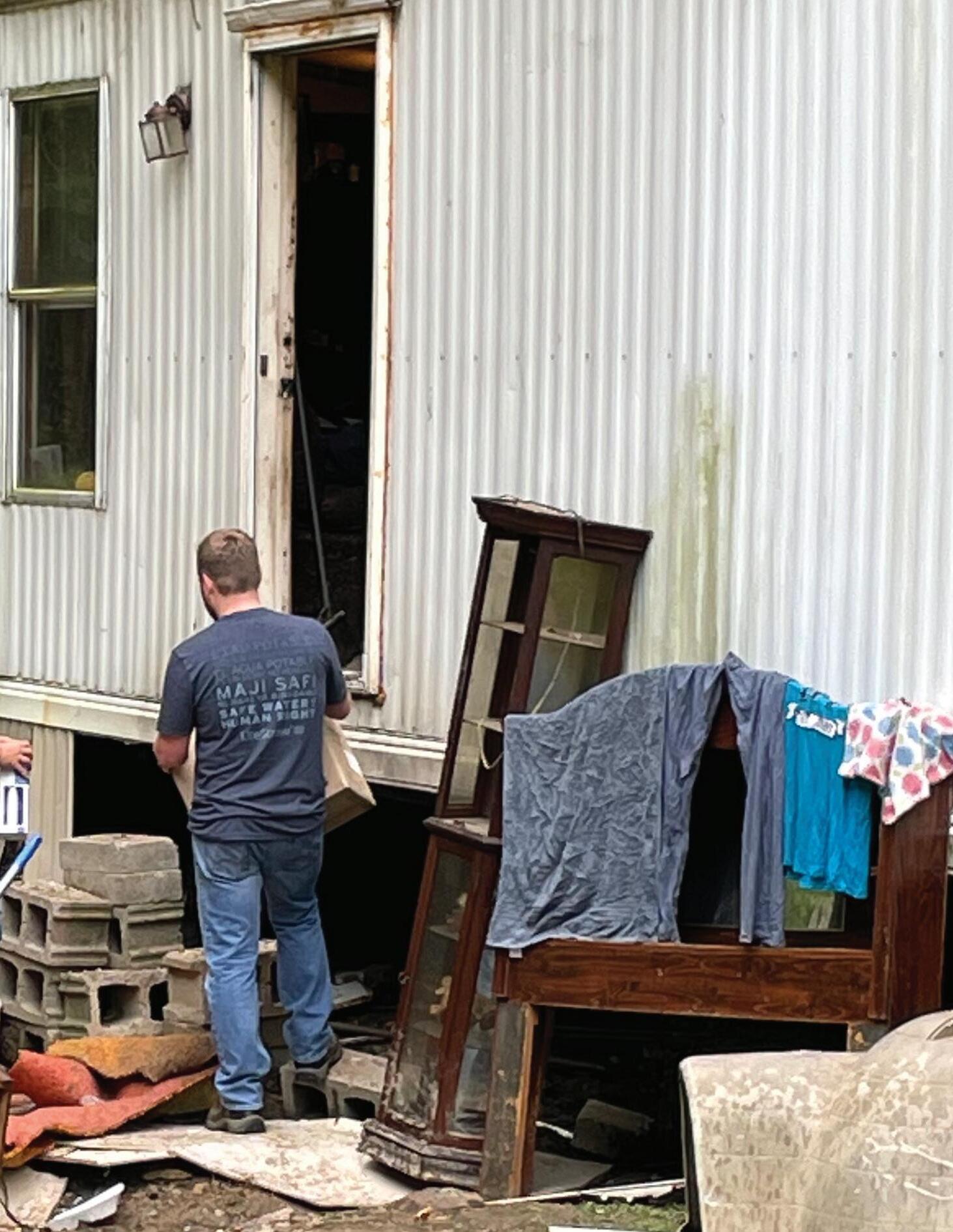

PEOPLE RESPONSIBILITY REPORT
BALTIMORE, MARYLAND
RESPONSE TO WEST BALTIMORE DRINKING WATER E. COLI CRISIS
LOCAL PARTNER: BALTIMORE GRASSROOTS ORGANIZERS
In September, the City of Baltimore
– LifeStraw’s hometown – issued a boil water advisory to over 1,500 residential and commercial facilities in West Baltimore after E. coli was found in drinking water. City officials blamed the water contamination on aging infrastructure; and while the advisory has been lifted, many residents are still skeptical of their tap water. In response, LifeStraw partnered with local residents and grassroots organizations to distribute 400 filters to impacted families – to ensure access to safe drinking water long beyond the initial crisis.
400
FAMILIES PROVIDED WITH FILTERS CAPABLE OF REMOVING E. COLI AND OTHER CONTAMINANTS
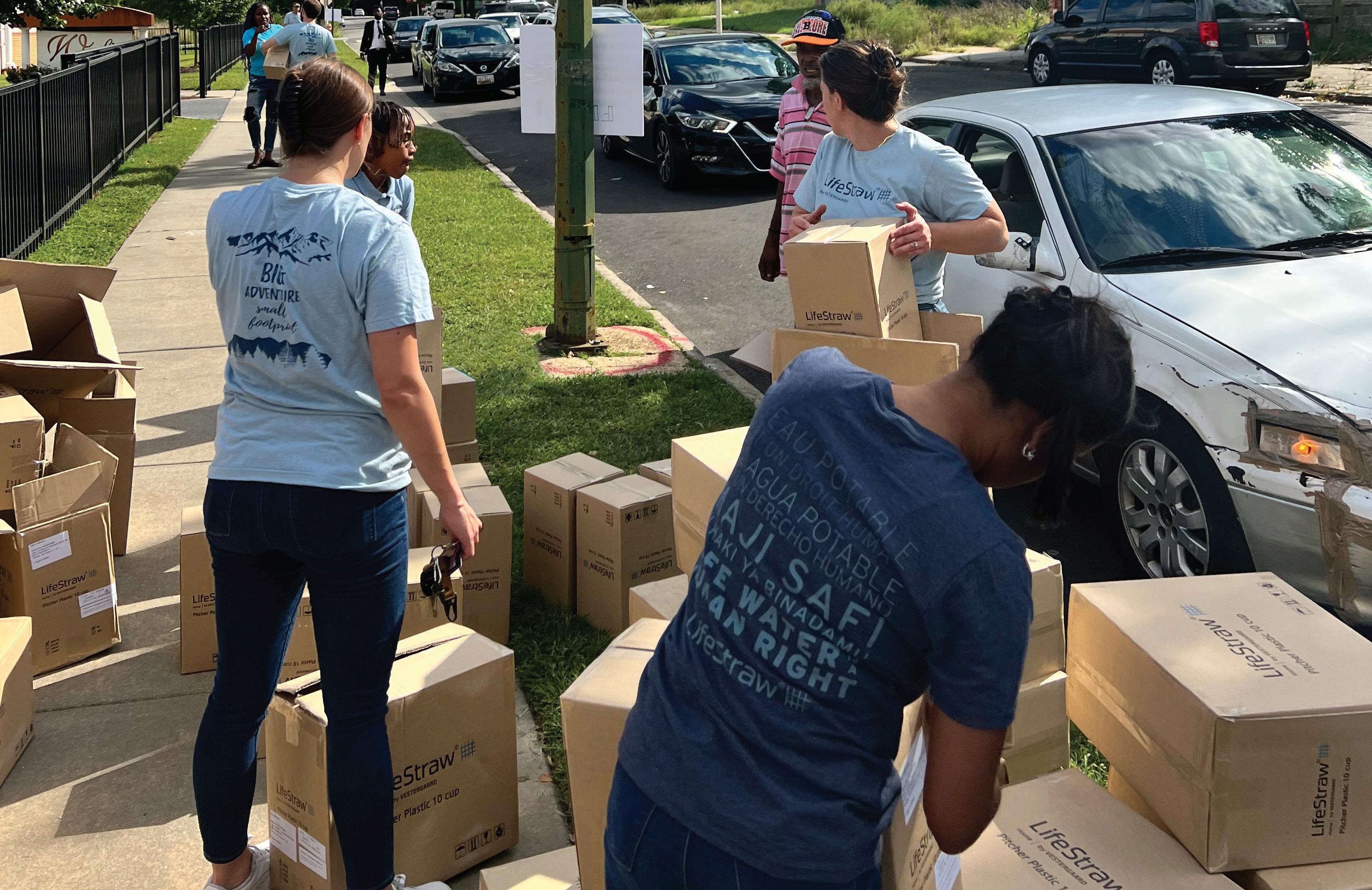
NAVAJO NATION ONGOING
SUPPORT RELATED TO LACK OF ACCESS TO SAFE DRINKING WATER
PARTNER:
An estimated 30 percent of people on the Navajo Nation lack access to running water and must haul their drinking water from unregulated, unsafe sources which are prone to microbiological contamination. Additionally, 500 abandoned uranium mines remain across the Navajo Nation, which seep into drinking water leading to morbidities like cancer.
In 2020, LifeStraw partnered with several local organizations to help provide filters to families during the peek of the pandemic. We have continued to work with community nonprofit, Rez

Refuge, to ensure continued access to safe drinking water. In 2022, with funding from nonprofit DigDeep, we scaledup our Youth-Led Safe Water project. Rez Refuge recruited six local youth, who led implementation of the program – including identification of high-risk families, promotion of the importance of safe water, and distribution and training of LifeStraw household purifiers and handwashing stations. The team has developed a safe water curriculum that centers Navajo culture, and brings stories and traditions around water to life.
100
LOCAL
REZ REFUGE + DIGDEEP
FAMILIES PROVIDED WITH FILTRATION IN 2022 PEOPLE RESPONSIBILITY REPORT
EASTERN KENTUCKY
FLOOD RESPONSE IN EASTERN KENTUCKY
In July, extreme rainfall hit parts of eastern Kentucky, including many surrounding Appalachia communities – causing devastating flooding across the region. Survivors say they were provided no warning, and that there was no time to escape.
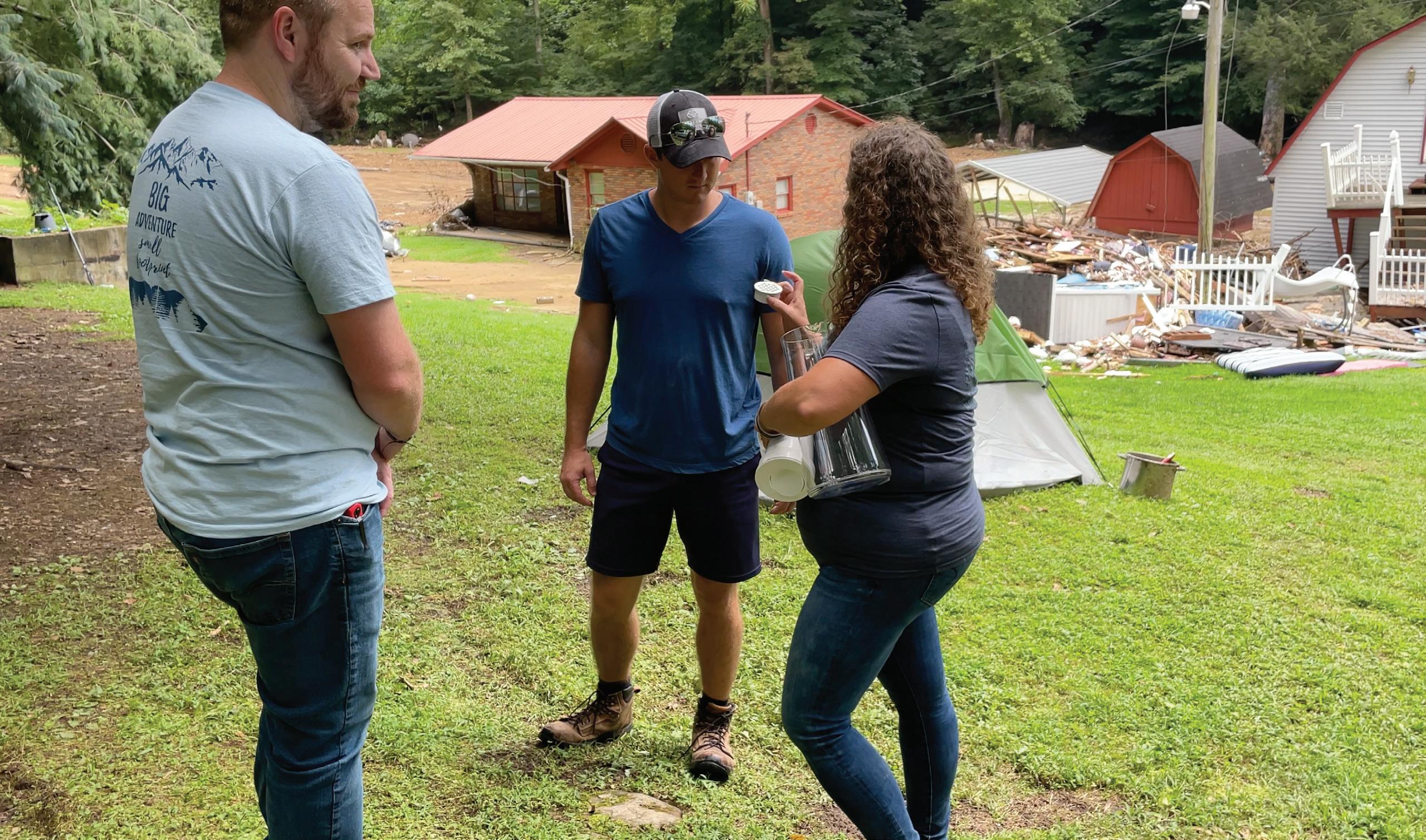
“No one’s ever seen anything this widespread,” stated one of our local partners.
The flooding has destroyed entire homes and much of the region’s infrastructure –leaving families without access
to shelter, food, electricity or clean water. Many communities resorted to using springs, swimming pools and flood water for all their water needs.
LifeStraw donated over 3,700 individual, household and highvolume purifiers – reaching over 10,500 people without current access to safe drinking water. Several LifeStraw employees traveled to the flood zones to support relief efforts in partnership with the USDA and local grassroots organizers.
3,700
FILTERS AND PURIFIERS DONATED
10,500
PEOPLE WITH ACCESS TO SAFE WATER
LOCAL PARTNER: USDA AND GRASSROOTS ORGANIZERS
JACKSON, MISSISSIPPI
RESPONSE TO UNSAFE DRINKING WATER CRISIS IN JACKSON
In August, severe storms caused flooding in and around the city of Jackson, Mississippi; damaging the city’s largest water treatment facility – which was already running on backup pumps due to failures the month prior – and halting the treatment of drinking water indefinitely for over 150,000 residents. Weeks after the failure, water pressure had been restored to most residents but remained unsafe to drink.
In response to the city’s resulting boil-water advisory and public health crisis, LifeStraw partnered with the Mississippi Student Advocacy Team, nonprofit GOODProjects, local community organization Broccoli City, and fellow B Corp Goodr, to distribute 250 LifeStraw Home water filter pitchers to provide a sustainable safe drinking water source for some of Jackson’s most at-risk families.
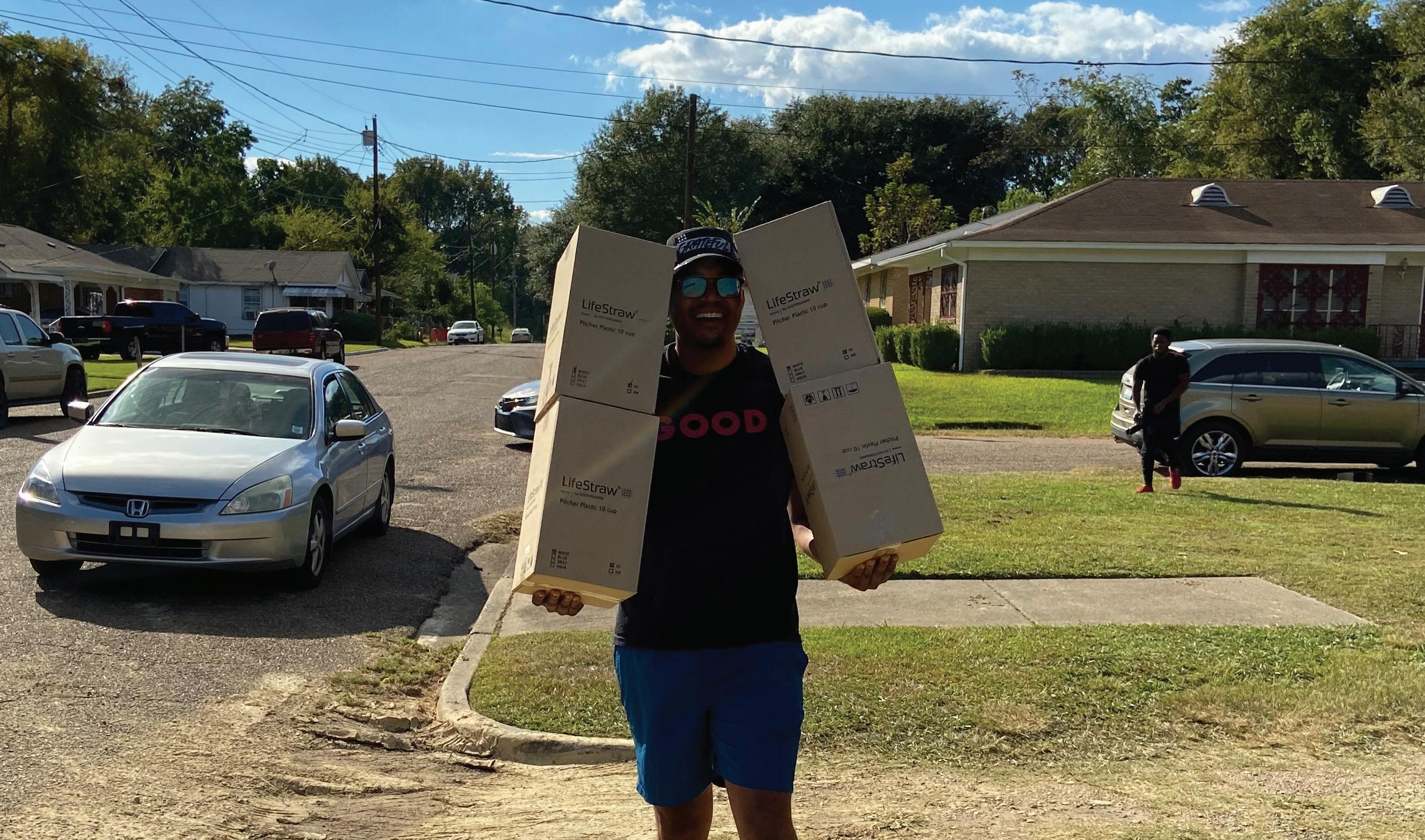
HOUSEHOLD WATER FILTERS DONATED PEOPLE WITH ACCESS TO SAFE WATER
250 1500
PEOPLE RESPONSIBILITY REPORT
LOCAL PARTNER: GOOD PROJECTS, MISSISSIPPI STUDENT ADVOCACY TEAM, BROCCOLI CITY + GOODR
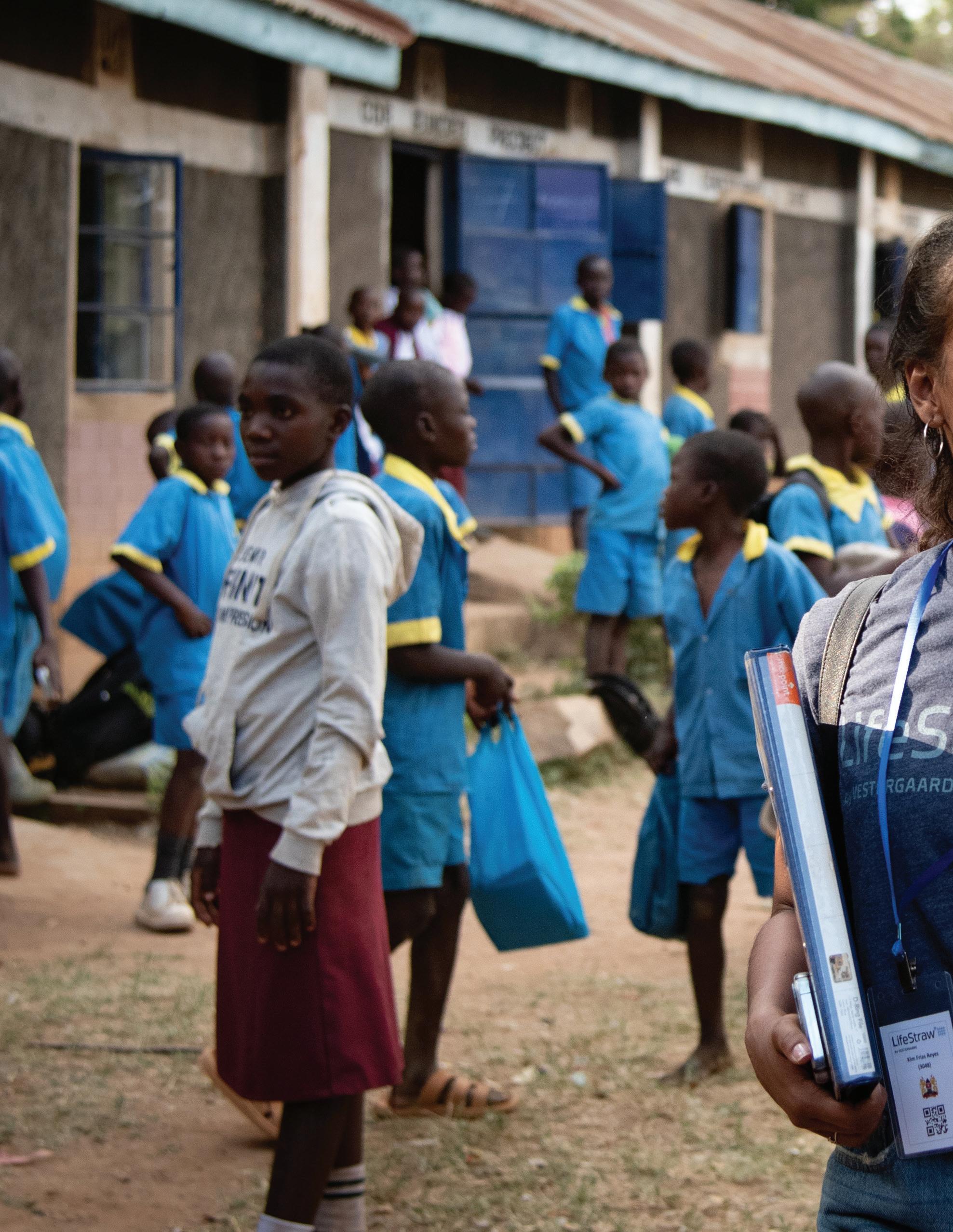

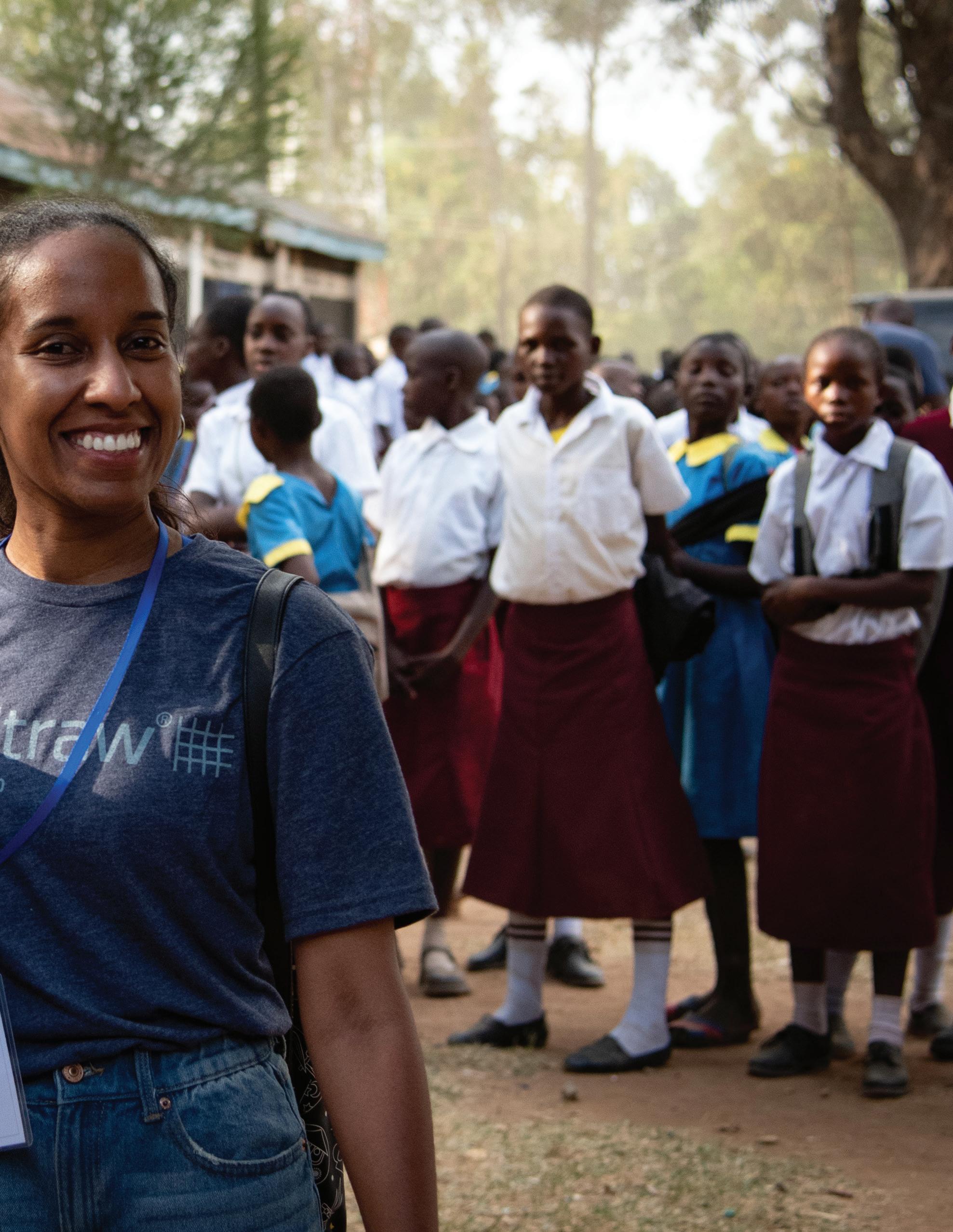




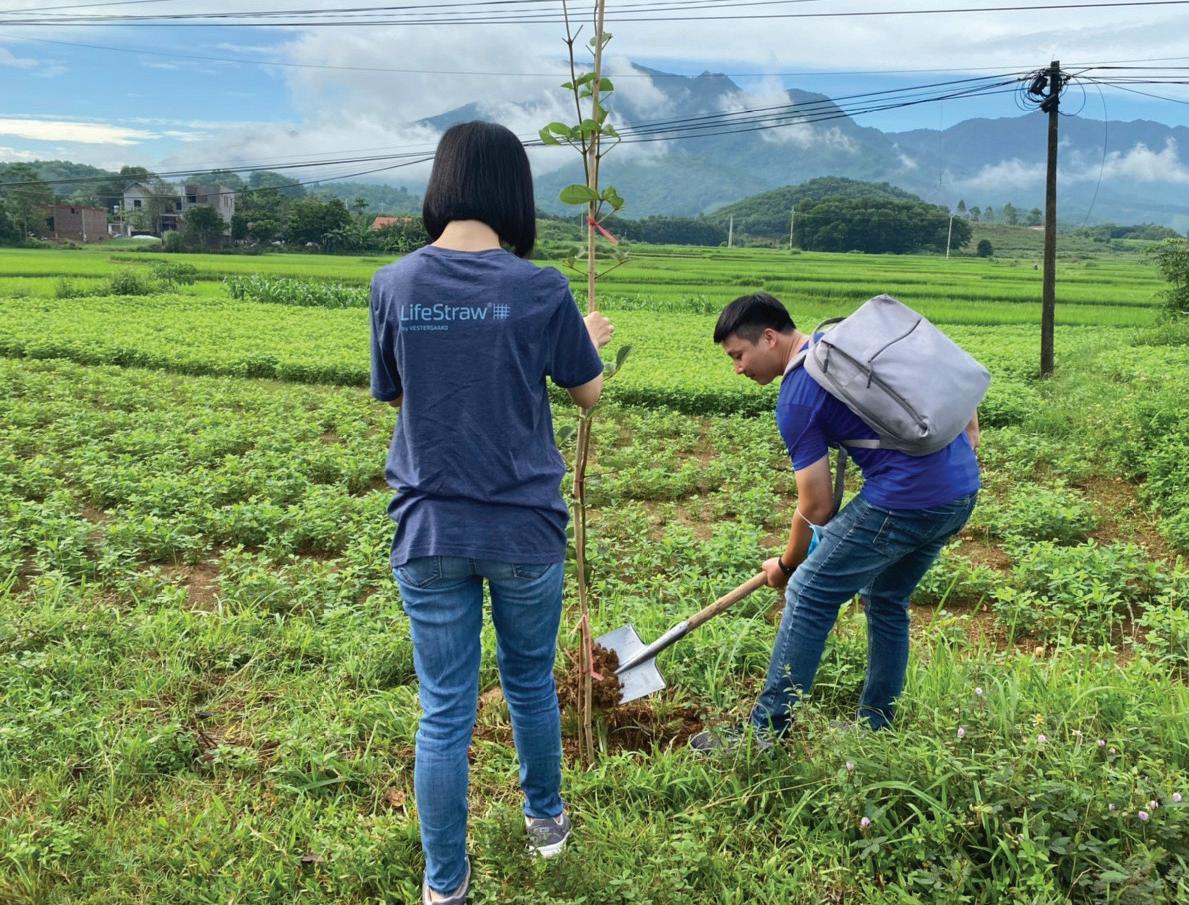
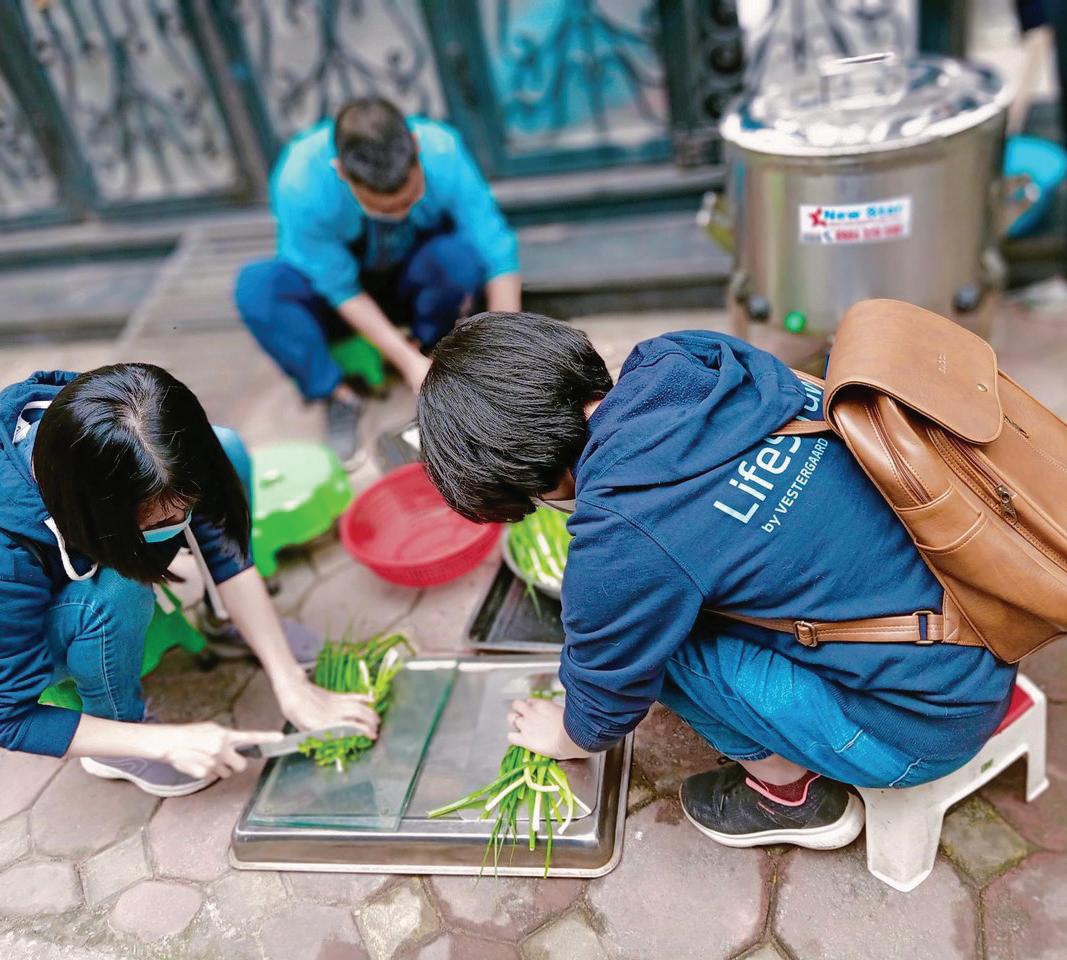

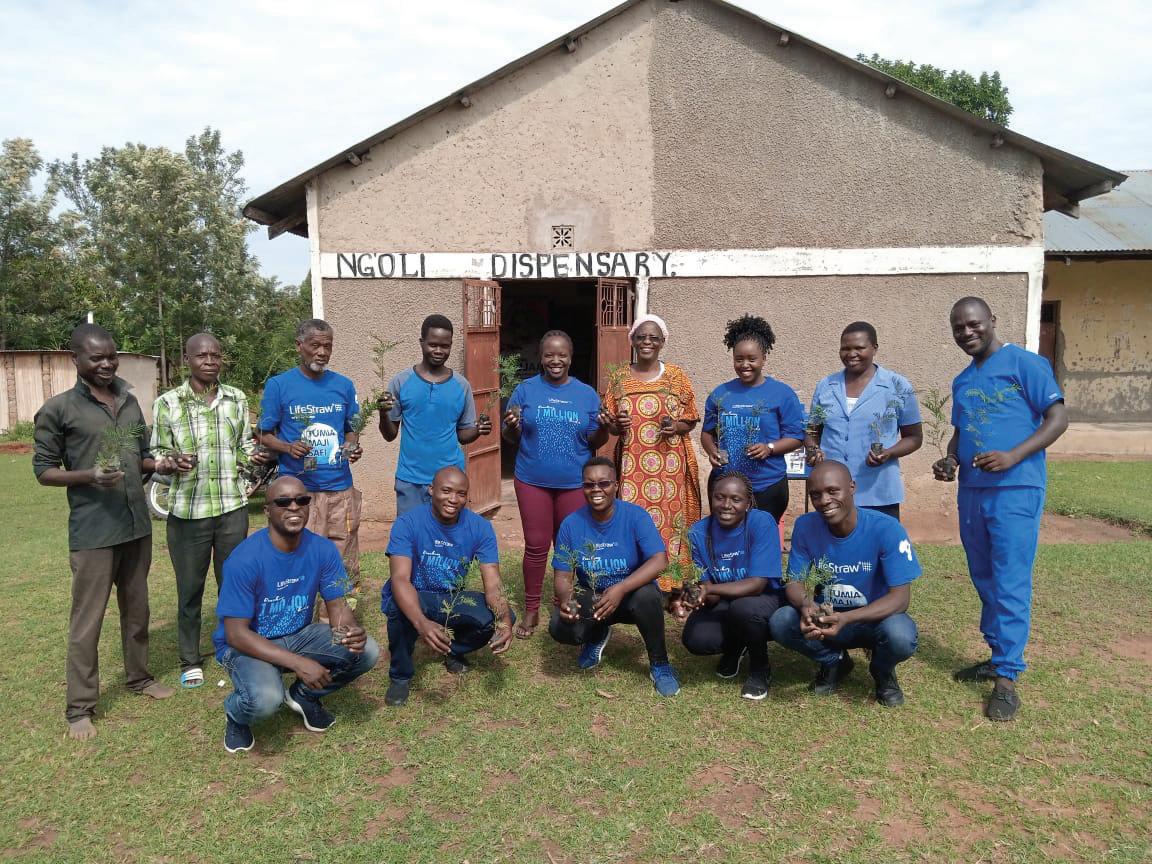

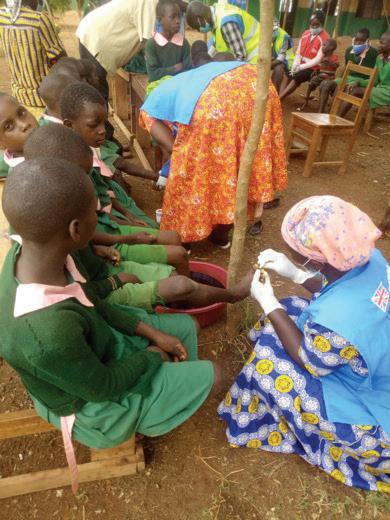
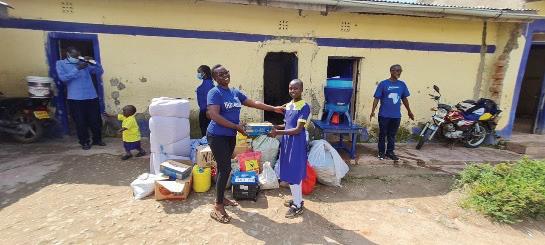
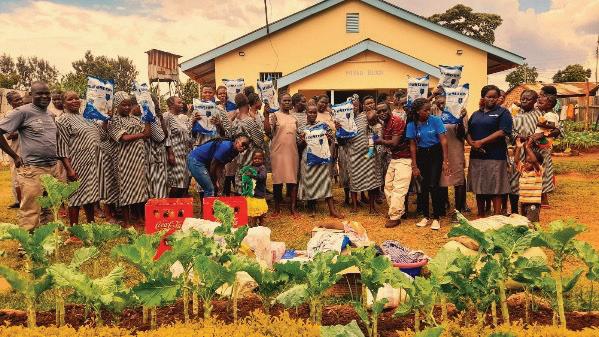

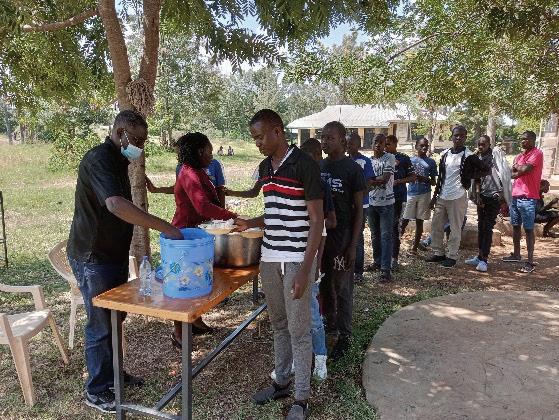



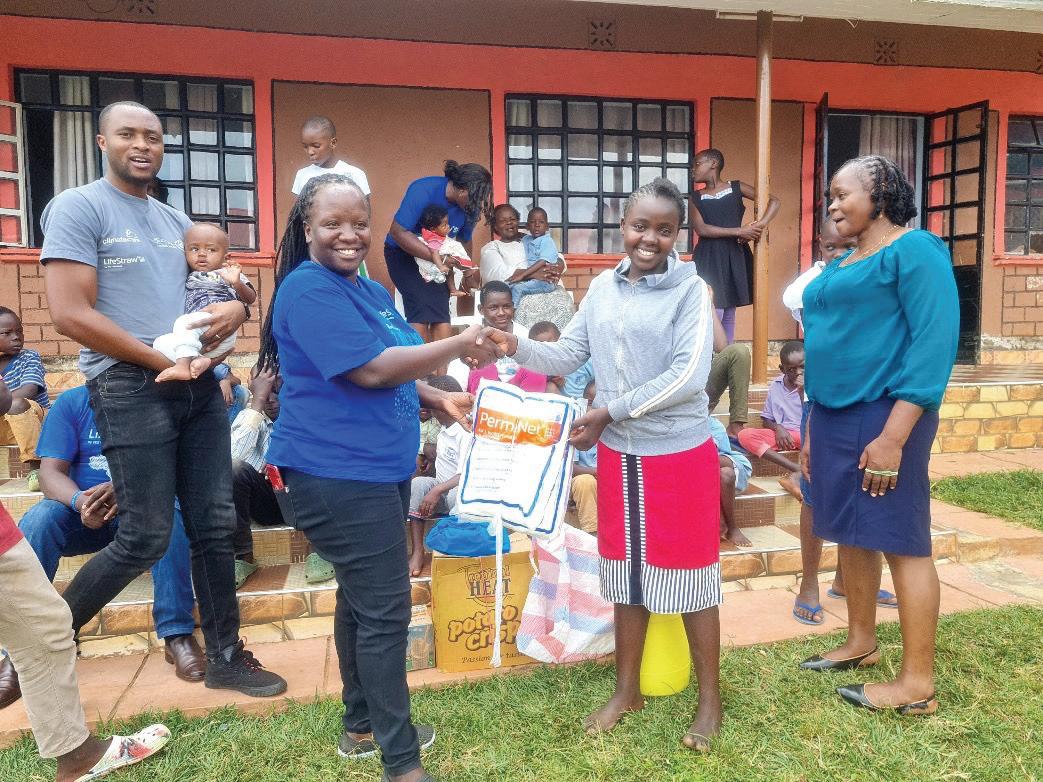


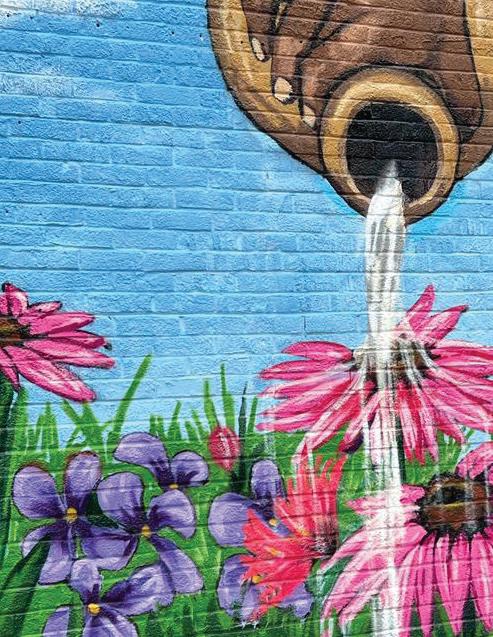

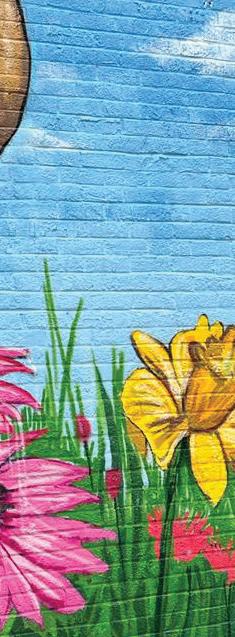

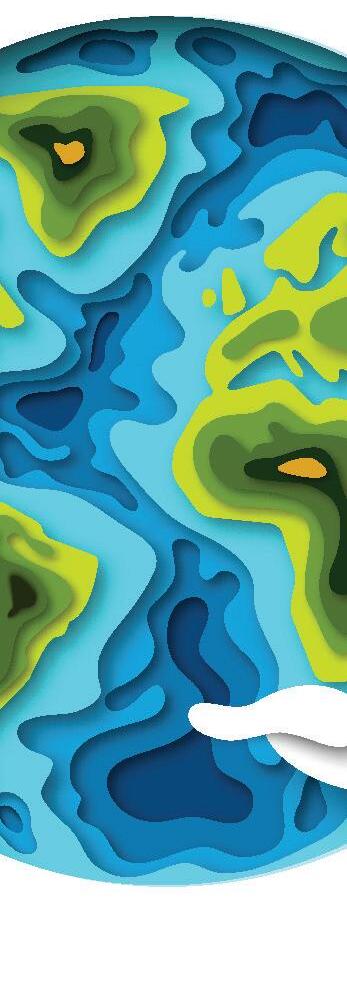

RESPONSIBILITY REPORT
As a company focused on disaster response and humanitarian relief –we know our responsibility to the planet and its people extends far beyond providing safe drinking water. We recognize that businesses play a critical role in the climate change that’s disproportionately impacting the very same communities that we work with; much of the CO2 emissions causing the earth’s warming come from business-driven economic activity.
As our company rapidly grows, we are committed to ensuring that we do so responsibly. In addition to the inherent environmental value of our products (by offsetting single-use plastics), we are continuously looking for new innovative ways to more responsibly impact our planet, while still providing products with cutting edge technology to address global safe drinking water concerns. We work to build an ethical supply chain; we carefully consider our raw materials and work with our production partners to reduce waste; and we strive to reduce our greenhouse gas emissions and offset the rest so our footprint is neutral. IMPACT:

PLANET
LIFESTRAW CLIMATE OVERVIEW
OUR APPROACH
MEASURE – we measure our emissions from cradle to customer, which allows us to make more informed decisions to mitigate our emissions hotspots.
OFFSET – the emissions that we do produce, we offset through verified carbon credits resulting in a net zero effect on the climate.
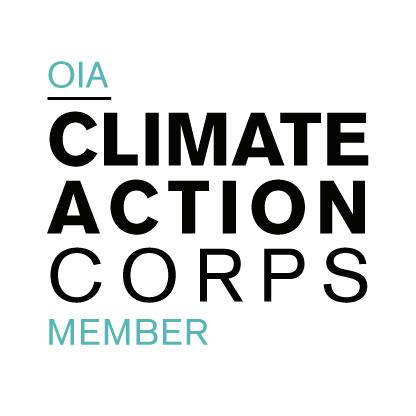
REDUCE – we also recognize that offsets are just a band aid, and we have set science-based targets and identified actions to reduce our emissions across our entire operations and supply chain.
2021 EMISSIONS
LifeStraw’s Science-Based (Emissions Reductions) Targets
OUR COMMITMENT: NEAR-TERM

1. Absolute reduction by 50% of operational emissions (scopes 1 + 2) by 2030
2. Measure and reduce scope 3
OUR COMMITMENT: LONG-TERM
1. 90% reduction by 2050
2. 10% permanent removal
58 RESPONSIBILITY REPORT
5,972 tCO2e
LIFESTRAW’S SCOPE
1, SCOPE 2 + SCOPE 3 FOOTPRINT WAS 79% of our footprint was associated with incoming product, including raw materials, process energy, primary packaging and freight.
We can’t mitigate what we don’t measure. Each year, we complete a full carbon audit to hold ourselves accountable for our company’s negative impact on the planet. These measurements enable us to both offset our entire company’s footprint, and to identify hotspots and prioritize our efforts to reduce emissions.
In 2021, LifeStraw’s Scope 1, Scope
2 and Scope 3 footprint was 5,972 tCO2e. 79% of our footprint was associated with incoming product, including raw materials, process energy, primary packaging and freight.
In 2023, we plan to analyze our greenhouse gas emissions at a product level – and eventually label each product with its carbon footprint.
MEASURE: OUR CARBON FOOTPRINT OFFSET: CLIMATE NEUTRAL
We believe that all businesses should be held accountable for their environmental impact. To help counter the carbon that our company does emit, we invest in offsets to fund projects that neutralize our footprint. LifeStraw is proud to have offset 100% of our emissions and recertify as Climate Neutral for the third year.
In 2022, we purchased our offsets from a new partner, Everland, who have a long history of investing in verified, high-quality carbon offset projects that uplift communities. Our 2022 offsets supported the Mai Ndombe REDD+
Project, which protects 300,000 hectares of critical bonobo and forest elephant habitat within the world’s second-largest intact rainforest and some of the most important wetlands of the planet, the Congo Basin. This project reduces the principle drivers of forest and biodiversity loss and is paving a new pathway for community prosperity through comprehensive investments into the surrounding local communities, which are among the least economically developed in the world.
IMPACT: PLANET 59
RAW MATERIALS 34% PRIMARY PACKAGING 9.3% COPACKER ENERGY 7.8% IN FREIGHT - SEA 8.8% IN FREIGHT - AIR 16.4% OUT FREIGHT - ROAD 1.2% BUSINESS TRAVEL 1.6% ADVERTISE 5.5% MARKETING 2.7% PRODUCT DEV 5.4% PURCHASES 3.1% ELECTRICITY 1.1%
PLANET
"Our offsets support protection of the Bonobo forest and elephant habitat in the Congo Basin"
REDUCE: SCIENCE-BASED
TARGETS INITIATIVE
Purchasing offsets is not enough to change the course of climate change in the long run. We are committed to radically reducing our carbon emissions by altering how we do business.
The Science-Based Targets Initiative’s Net-Zero Standard is the world’s first science-based certification of companies’ net-zero targets in line with the Paris Agreement’s goal of keeping planetary warming to 1.5°C.
LifeStraw’s Science-Based (Emissions Reductions) Targets
OUR COMMITMENT: NEAR-TERM
1. Absolute reduction by 50% of operational emissions (scopes 1 + 2) by 2030
2. Measure and reduce scope 3
OUR COMMITMENT: LONG-TERM
1. 90% reduction by 2050
2. 10% permanent removal
To reach these ambitious reduction goals, LifeStraw has developed an internal roadmap that focuses on actions including:
• reducing energy consumption by switching to solar and/or buying renewables
• moving manufacturing closer to market
• switching to more ‘green’ sources of freight providers
EMISSIONS REDUCTIONS HIGHLIGHT: LIFESTRAW WATER LAB
LifeStraw’s Water Lab in Vietnam has always been at the forefront of our company’s sustainability efforts –working diligently to reduce the amount of water and electricity used in its operations. In 2022, the team:
• Created an automated aging test system for LifeStraw Home products, which saves 50% of human resources and 1600kw of electricity annually.
• Optimized our waste water discharging system to save 330kw of electricity annually.
• Optimized the installation of and proper settings for a new air conditioner system that saves 550kw of electricity annually.
• Optimized our glassware washing procedure, which saves 100,000 liters of water annually.
60 RESPONSIBILITY REPORT
• significantly reducing air freight
• reducing plastics and utilizing more sustainable materials in both products and packaging
SMALL WINS, BIG IMPACTS
• improving sustainable supplier selection
In addition to large, company-wide goals, LifeStraw encourages our staff to take smaller and individual actions to collectively expand our sustainability impact. In 2022, LifeStraw implemented new recycling and composting programs in the Baltimore office; researched ways to get more involved in climate resiliency across our programs; held our second annual “Sustainability September” – a companywide competition to encourage staff to make environmentallyforward changes in their every day life; switched to reusable “paper towels”; participated in community-cleanups and tree plantings; and much more! Finally, 2,260 kgs of used LifeStraw products in Kenya were upcycled to make new items like basins, jerrycans, buckets!
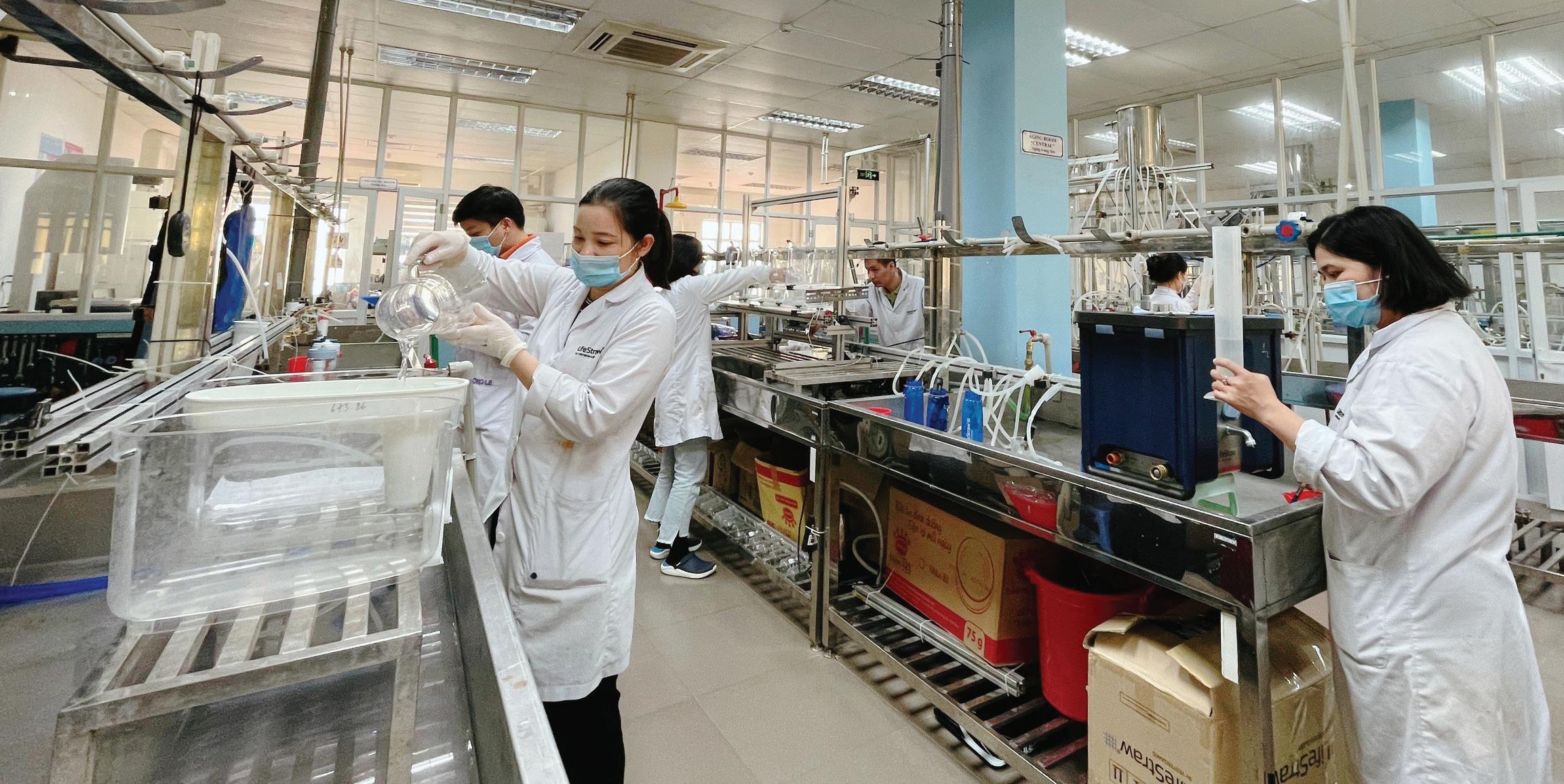
PLANET
RESPONSIBLE PRODUCTS + PACKAGING
152,489,537 PLASTIC WATER BOTTLES WERE OFFSET BY THE PURCHASE OF LIFESTRAW BOTTLES, PITCHERS AND DISPENSER PRODUCTS IN 2022
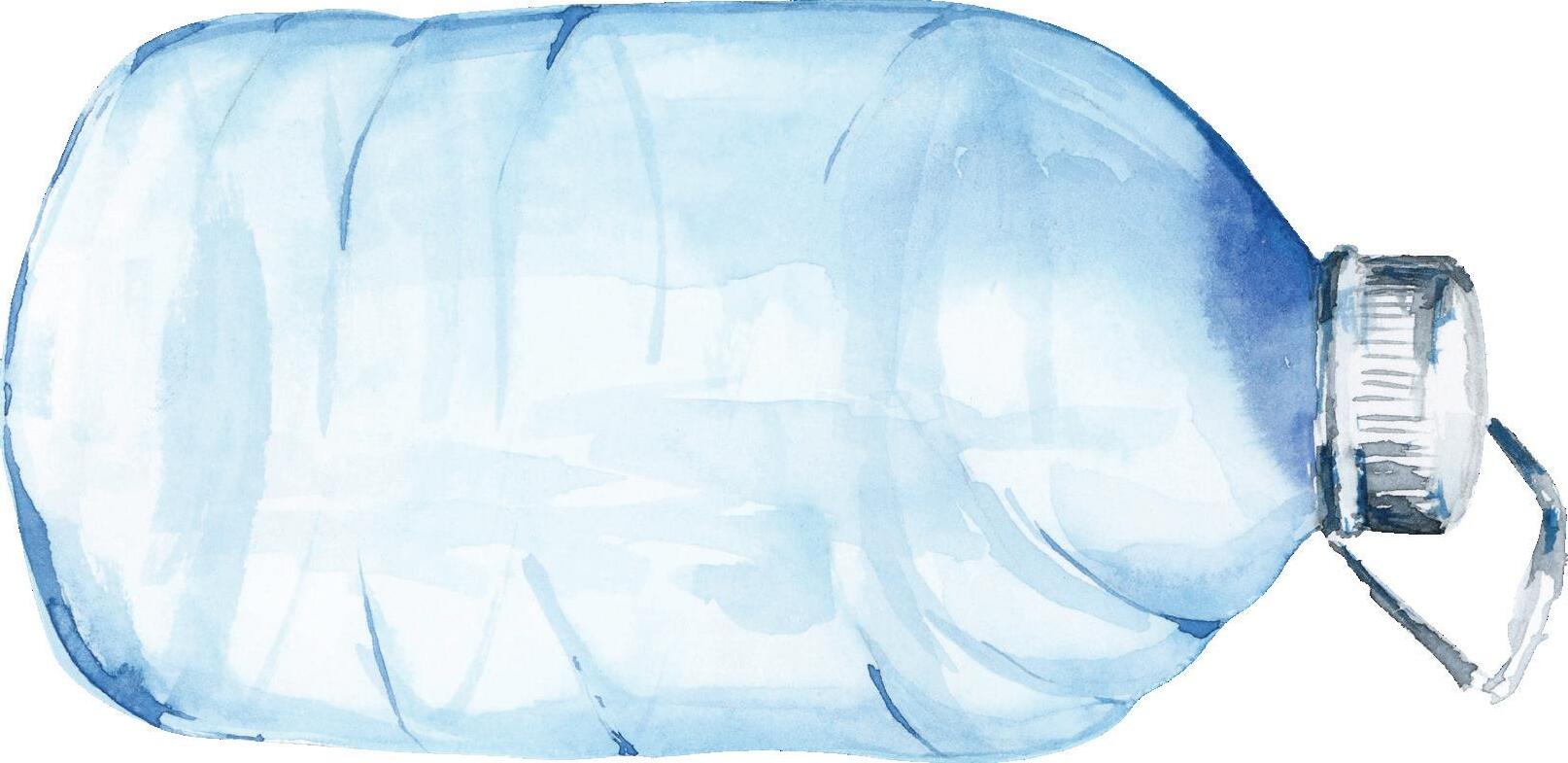
Americans alone purchase 50 billion single-use plastic bottles every year –151 per person! Worldwide, it’s estimated that 583 billion water bottles were used in 2021. And according to the EPA, only 8.4% of plastics are recycled – the rest end up in our streets, our oceans, our air and our bodies.
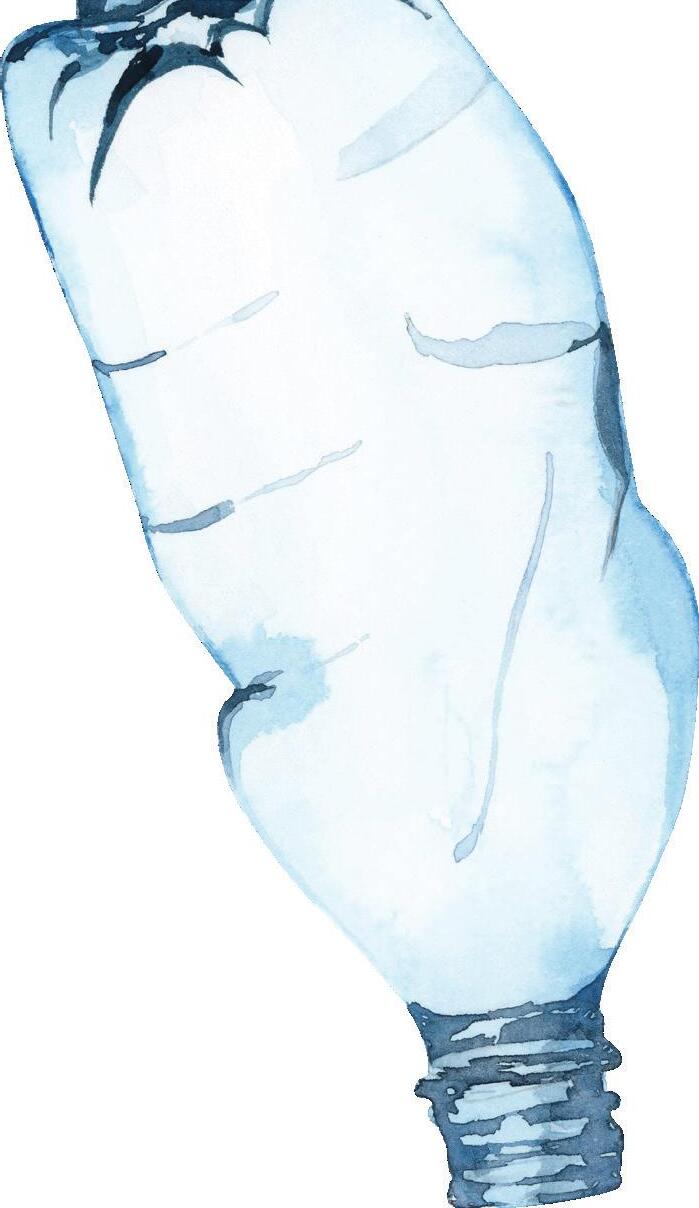
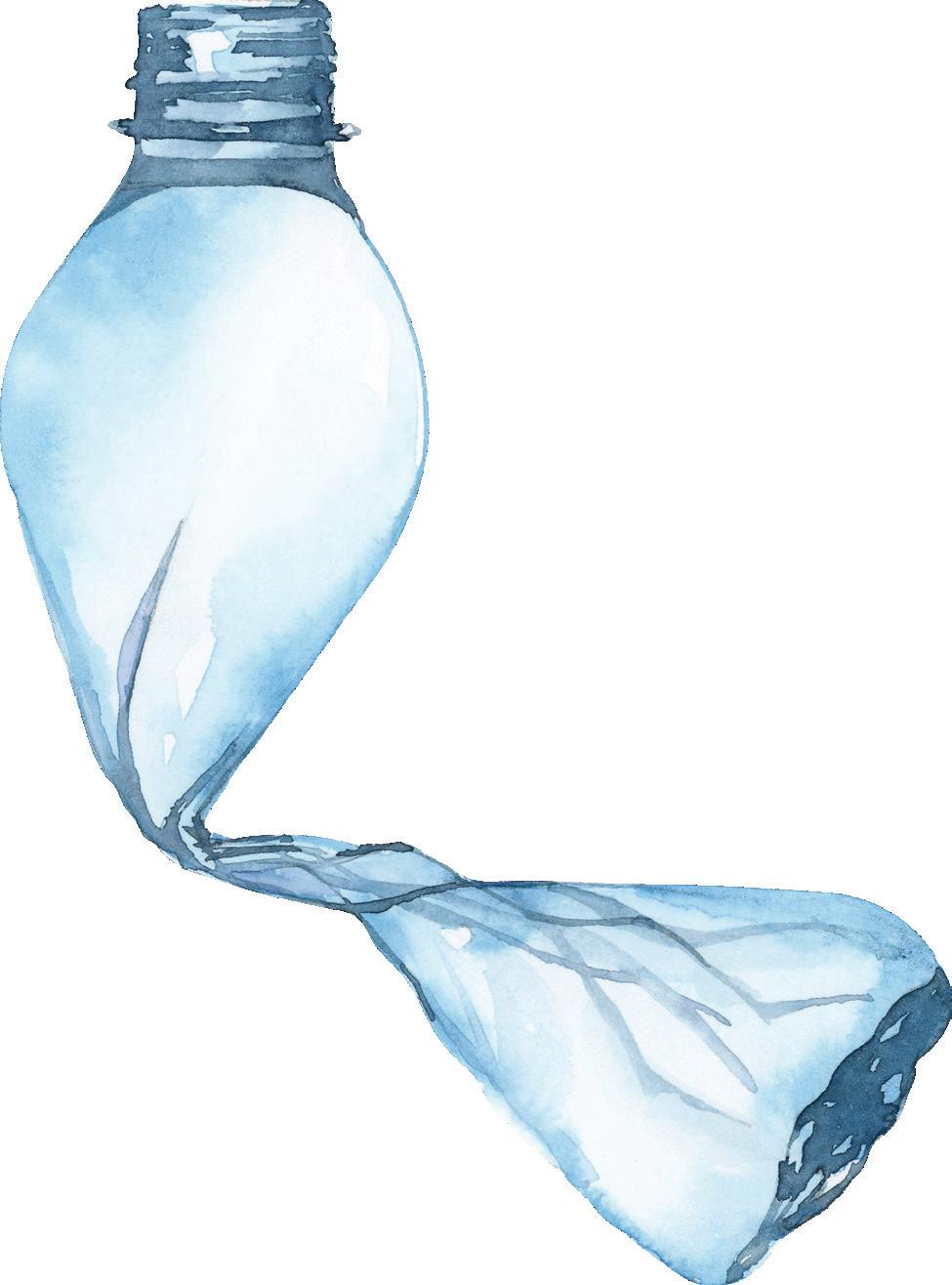
Through responsible packaging and strategic product design, we are committed to combating the tons of plastics that plague our environment.
152,489,537 plastic water bottles were offset by the purchase of LifeStraw bottles, pitchers and dispenser products in 2022!
DID YOU KNOW? A recent study found microplastics contamination in 93% of the globally-sourced bottled water they tested. We ingest roughly a credit card’s worth of plastic EACH WEEK. LifeStraw filters and purifiers remove 99.999% of microplastics from drinking water.

PACKAGING
We launched a new outdoor product line made with 50% post-consumer recycled material and 100%
Packaging is critical to protecting the integrity of our products, but we are determined to ensure that it has minimal environmental impact. The packaging of our products is evaluated from design to production to ensure that we are aligned with our sustainability and health principles.
RESPONSIBILITY REPORT
LifeStraw Sustainable Packaging Guidelines
OPTIMIZATION
Optimize products to eliminate the need for packaging materials
Eliminate unnecessary packaging material and avoid empty space
Use recycled material where available or choose materials from sustainably managed and renewable sources (ie. FSC)
RESPONSIBLE SOURCING
Work with suppliers that comply with environmental best practices
Source local where available in order to reduce shipping distance for packaging material
Contrill secondary and tertiary packaging practices, such as overboxing at warehouses or internal shipping of components for final assembly
MATERIAL HEALTH
Select materials that are nontoxic, produce less waste and go through less hazardous chemical processes
Ensure material transparency: all packaging material substances are declared, compliant with regulation and documented, including inks, coatings and adhesives
RECYCLING
Select materials with high recycling rates
Ensure that coatings, inks and material combinations are consistent with recycling technology

Apply appropriate labeling for how to recycle each packaging component
Where possible, only use a single packaging material to help simplify customer recycling or reuse
Avoid plastic packaging materials whenever possible
In 2022, we also launched our internal Sustainable Packaging Task Force – a dedicated group of LifeStraw staff that meets biweekly to focus on identifying more sustainable sourcing partners and alternative materials, as well as ways to reduce the amount of packaging used.
We are also in the process of identifying more locally sourced options to reduce air freight emissions resulting from shipping packaging.
LifeStraw also partners with How2Recycle, and includes their logos on all products in order to aid customers in properly disposing of
our packaging – further reducing its environmental impacts.
Finally, we continued participating in the plastic impact alliance, the prAna Sustainable Packaging Movement, the Outdoor Industry Alliance sustainability working group, and the Conversation Alliance.
IMPACT: PLANET 63
PLANET
ETHICAL MANUFACTURING
LifeStraw is committed to ensuring responsible manufacturing, from sourcing sustainable materials, to ensuring ethical working conditions throughout our supply chain, to chemical and water management and beyond. We carefully evaluate all suppliers and manufacturers to ensure that they share our standards for ethical working conditions, and social and environmental sustainability practices.
ETHICAL TRADE AUDITING
SMETA (Sedex members ethical trade audit) is designed to help auditors conduct high quality audits that encompass all aspects of responsible business practices, covering Sedex’s four pillars of labor, health and safety, environment and business ethics. In 2021, LifeStraw completed SMETA audit for our two largest Tier 2 supplies (which account for 60% of all LifeStraw products). Our Tier 1 suppliers already have passed SMETA audits.
INCREASING TRANSPARENCY THROUGH CERTIFICATIONS
LifeStraw is committed to supply chain transparency through formal, industry recognized certifications. All current suppliers are ISO 14000 compliant (which means they’ve met standards set to minimize how operations negatively affect the environment) and our primary supplier is also ISO 45000 compliant (ensuring they’ve met all occupational health and safety standards). In 2021, we also certified seven vendors for International Sustainability and Carbon Certification (ISCC), a system established to ensure an international, practically viable, and transparent system for certifying biomass and bioenergy.
CHEMICAL MANAGEMENT
The quality of our products is the foundation of our supply chain. All products, components and materials that are in contact with drinking water are FDA compliant as food grade materials and BPA-free. In addition, we conduct comprehensive chemical testing to be aligned with emerging regulations including Prop 65 and other industry and retailer standards. We
64 RESPONSIBILITY REPORT
maintain and publicly share our Restricted Substances List to ensure that specific substances are limited or eliminated from our products and comply with all FDA and EU regulatory requirements.
Our chemical standards specifically take into account: The Food and Drug Administration US FDA 21CFR177, FDA 21CFR181, FDA CPG SEC. 545; European Regulation (EC) No. 1935/2004, Plastic regulation (EU) No. 10/2011, European Directive 84/500/EE; French decret No. 2007- 766, French decret No. 92-631, French Arrete Du Novembre 1992, French Law 2012-1442; German 1 September 2005 (LFBG), DIN 51032:2017 and their amendments.
CODE OF CONDUCT & RESPONSIBLE SOURCING
LifeStraw maintains a strict Code of Conduct that we require our production facility, all supply chain vendors and Tier 1 vendors (which supply direct product components) to sign and adhere to on an annual basis. This includes
our expectations for environmentally responsible manufacturing and sourcing. The complete Code of Conduct is available on our website.
HIGHLIGHT: In 2022, in order to continue to progressively improve our sustainable procurement strategy, we designed a Sustainable Sourcing Criteria Questionnaire, which was sent to all of our Tier 1 vendors to complete. This comprehensive survey will allow us to measure, and set targets to improve, a broad range of environmental and social contributions and performance. A similar audit will be sent to all prospective new vendors, to ensure they meet our minimum standard for responsibility.
We’re also working with vendors on a smaller scale, to encourage staff participation in daily environmental activities – like line-drying clothes instead of using the dryer.
IMPACT: PLANET 65
PLANET
ADDRESSING PFAS, ‘FOREVER CHEMICALS’
LifeStraw continually strives to address emerging contaminants in global drinking water. One of that areas that we have focused on, to address concerns for public health, is the category known as per- and polyfluoroalkyl substances (PFAS), often referred to as ‘forever chemicals’. A recent study published in the journal Environmental Health Perspectives has noted that child growth and development is significantly impacted by PFAS in blood. This class of chemicals resists
most conventional chemical and microbial treatment technologies.
The LifeStraw Home pitchers and dispenser products are effective in combating PFAS; their dual filtration technology combines membrane microfiltration with activated carbon and advanced ion exchange technology to remove PFOA and PFOS from water. According to test results in an independent, accredited lab in the US, LifeStraw Home exceeds the NSF International P473 standard for reducing PFOA and PFOS.

66 RESPONSIBILITY REPORT
GLOBAL STANDARDS + TESTING
Our products meet or exceed global standards and are routinely tested, both internally and by independent labs, to ensure product claims.
LifeStraw operates its own ISO accredited water lab
We operate an ISO/IEC 17025 accredited water laboratory with a dedicated team of scientists based in Vietnam. This team provides feedback during product design, conducts quality validation and testing of all new and existing products, provides ongoing, long-term microbiological, chemical and heavy metal product testing, and coordinates external testing with other accredited international labs.
We use the most current drinking water protocols from US EPA, NSF, and ANSI
In accordance with the United States Environmental Protection Agency (US EPA) drinking water standards, American National Standards Institute (ANSI), and NSF International (NSF) protocols, LifeStraw filters are tested against challenging water standards including high levels of microbiological contaminants, such as enteric bacteria and protozoan parasites. Relevant
products are also tested against NSF standards for aesthetic impurities such as taste (NSF 42), and heavy metal contaminants with health effects (NSF 53). LifeStraw’s new Home and Dispenser water filter pitcher have been tested and certified for both.
LifeStraw Home is one of the first filtering pitchers tested to remove PFOA and PFOS
LifeStraw Home and LifeStraw Dispenser also meet standards for NSF 473 for reduction of PFOS and PFOA, as well NSF 401 for the removal of emerging drinking water contaminants such as pharmaceuticals and BPA.
Our humanitarian products meet the highest WHO independent testing standards
An independent 2016 WHO study evaluating the performance of household water treatment technologies gave three LifeStraw products – LifeStraw Family 1.0, LifeStraw Family 2.0 and LifeStraw Community – high performance results, deeming each with “comprehensive protection”.
IMPACT: PLANET 67
PLANET


